#and its unclear if it's because he himself values representation (likely)
Explore tagged Tumblr posts
Text
Watching Taika Waititi take over as "guy in charge of delivering queer representation" for marvel (and maybe star wars?) Is kind of like... like watching an invasive species find a highly specific ecological niche and absolutely FLOURISH despite the odds, except that I'm not mad about it, if anything I am highly entertained. You go you funky little (allegedly) straight man, be the pigeon of Disney franchises. Make star wars gay, I believe in you
#this is especially funny because it seems to be an entirely self-assigned role#and its unclear if it's because he himself values representation (likely)#or because he likes defying authority and queer representation presents a new challenge (equally likely)#in any case. i love it. im having fun#thor love and thunder#text posts to the void
2K notes
·
View notes
Note
1/2 Hi! What's your opinion about Aerith's resolution scene? It feels like most of fans are more interested in convenient interpretations to confirm/discard the CA ship, without really wondering, from a narrative standpoint, "why", of all the things Aerith could warn Cloud against, she touches the romantic subject? And so early in the story too. Romance in FF7 is often treated by fans as a standalone thing more than something that is interweaved with the main story and has a role within it.
2/2 Should we now re-evaluate the weight of CA relationship in the OG? I never felt like Cloud had more than a crush on her or her death broke him. But when a compilation expands in such a relistic way, the main story needs to be retroactively reinterpreted (like what happened with CC). I'm also wondering what significance we should give to the black floating feathers in this scene (the most visible one appearing when Aerith prays – hard not to think about Sephiroth). PS Sorry for the bad English
Don’t worry, your ENG is fine here!
Anywho, it’s quite the subject isn’t it? I often speak on how sometimes the foundation of a fan’s understanding of the Remake is grounded by their understanding of the OG. Which does make sense and have its merit, but it can also lead to a lot of biased views if there isn’t a consideration of the Remake’s way of storytelling. That’s why we have less of a reasonable spectrum of thought, and more of these black and white interpretations you mentioned floating around. I’ve seen a lot of “Aerith is telling us a fact: Cloud’s feelings aren’t real!” vs. “Cloud confessed to Aerith that he’d fall in love with her!”.
It doesn’t take much time to realize who is saying what.
The first example is talking about something that hasn’t happened yet (e.g. Cloud confirming Aerith’s words), and the second example is talking about something that, by the scene itself, just didn’t happen anyway. From a narrative standpoint and with an understanding of the story of FF7, this part of Aerith’s Resolution reflects two points: Cloud’s false memories/self and Cloud’s feelings for Aerith—more directly, the premise that if Cloud falls in love with Aerith, his feelings won’t be real due to the state of being he’s in. Additionally, this resolution essentially acts as a reflection of Aerith’s GS Date but with twists—the first being that her thoughts on Cloud’s falsity is not tied to the correlation of his similarities to Zack, and the second being that it adds a dash of something more reminiscent of the dream/forest scene (if anything, the Resolution is almost an applicable replacement of it in general). Death, cherishing time left and memories, and Cloud not being completely himself—there’s a lot of foreshadowing here.
This is where people typically use their takes on the OG to formulate a conclusion for Aerith’s premise, as you’ve seen above, with even some extending alternates. For example, that the real reason Cloud’s feelings wouldn’t be real because he’s really in love with Tifa already and is incapable of feeling anything for anyone else as he is.
But my take?
To be upfront, this scene sets up the idea that Aerith is wrong in regards to the romantic storytelling between the two of them. That yes, his feelings (in this case, that of “suki” [すき, romantic like/love when used for a person]) are going to be real despite the state he’s in. Not to mention, it isn’t an “if” he has romantic feelings, because it goes against all reason and understanding of anything else in this scene to suggest this premise was written for the sake of something that won’t happen or won’t be addressed. Even if she is right, this is only effective writing if yes, Cloud indeed falls for her and thought those feelings were real, and thus, finds out that he truly doesn’t feel that way once he regains his true self. There’d be no point to this line if he doesn’t feel this, otherwise for the sake of writing, it would’ve made more sense for her to suggest that what she just talked about (the memories/moments/happiness shared) were going to be what wasn’t real, specifically.
Until further information tells me otherwise, I believe Aerith is going to be wrong because of how the OG and relevant material presents what Cloud retains once he regains himself.
Let’s get into it.
Unlike the OG, Aerith is presenting the falsity of Cloud not through her own feelings, but that of HIS. She’s not assuming that the mantra of “embracing the moments” is something that Cloud won’t retain—it’s just the romantic feelings that will grow from them. We don’t have to worry about whether what Cloud retains from these moments and memories of Aerith are false. Why? Because that was completely fine in the OG. The moments, memories, and the bond they shared were all real to Cloud after he regains himself. And obviously, not just with Aerith, but with all his companions. If he didn’t retain what he gained while Aerith was alive, he just simply wouldn’t have any reason to value Aerith, it’d almost be like he doesn’t know her existentially at all. But that isn’t the case. Really, what he gained with his companions was never put to the test of falsehood in the first place.
But the romance? So specifically?
The “why” of everything that is said in this scene is done for some narrative purpose, representing future events and themes to be further implemented down the line. In a literal conversation about romantic feelings to be confirmed or denied story-wise—this is romantic storytelling, and whether you like it or not, it has been issued between the two characters. And of course, I believe it should make someone re-evaluate their understanding of the OG—not in the way where the story itself begets change (like that of the effect with CC, as you mentioned), but more so in realizing that the Remake is just a more expressive reflection of the romantic storytelling that was already in the OG. The writing and approach of the Remake is different than that of the OG, as we can even see between the expressions and details expanded on, like say for Cloud and Tifa’s bond and what that alludes to later down the line as well. This same thing is done for Cloud and Aerith, and what may not have been as openly expressed, is now done so too.
In the OG, the romantic storytelling between Cloud and Aerith played on the typical RPG standard of player-story interactive choice, but was contained in that by not having the story clearly address those choices through Cloud’s character after he regains himself. That and all relative materials like interviews or guidebooks relative to the OG—we only have a few direct romanticisms and some that can be argued as indirect given context. It’s not absent, but it’s unclear to the point it’s a discussion people still have 20+ years later. Also, by those possibly confused, player choice does not eliminate this through character representation—I’ll digress as it’s a whole other thing.
Cloud’s time with Aerith isn’t a mystery—we see everything between them and experience it as the player. We know what did or didn’t happen, what could be expressed, and what we’re left with in regards to romanticism is more of an unaddressed, almost irrelevant idea. What’s represented openly instead is everything else about their important bond, basically. Romanticism—it’s all in the air, not invalidated, but also not further represented for the character in the things referenced afterwards, like Cloud mentioning his memories of her, wanting to see her in death [Promised Land], Aerith being a friend, comrade, irreplaceable, etc. His time spent with Aerith was still something Cloud kept with him.
So, if the question for the OG is: did Cloud retain any romanticism for Aerith as a cherished feeling/memory, too?
I believe by right of the storytelling values presented in the game, that yes, he did. While the game and other materials make no attempt at trying to elaborate on Cloud’s favor towards Aerith, they also don’t negate it in void either from his character. A general good rule of thumb: usually when you have romantic meaning issued between two characters, whether through parallels, symbolism, other characters, the characters themselves, etc.—if it’s something that isn’t confirmed (e.g. confessions or explicit showing of romantic interest) OR isn’t countered or denied significantly (obviously not including the typical false denial by a character), then typically, you go with the positive-end that the representation there does indeed confirm that romanticism.
Think about it like this: remember that show you watched where the two lead characters had romantic subtext, but the show ends without them getting together? Yeah. If you’re at the point of claiming romantic subtext, you’re not doing so for the sake of saying the authorial intent is to show non-romance, but to show romanticism in a subtle way. There are a myriad of writers who have this style, and getting a direct confirmation or explicit showing of romance isn’t always in the cards for how that storytelling is going to be expressed. But, that hardly erases what is still intended to be understood.
The thing about Cloud and Aerith, the romanticism that can be understood from Cloud IS indeed never confirmed, not like how it was for Tifa. Which, I do advocate this actually does showcase how his romantic feelings for Tifa have a further depth than of that for Aerith given the lack of relevancy in comparison. However, his feelings for Tifa don’t negate what he felt for Aerith in totality, not to the point of being evidence of absence. The OG and further materials paint the picture that, after Aerith’s death, Cloud still remembers and cherishes her as a comrade—the memories, the moments. All of it. What’s understood is that everything that Aerith was to Cloud was carried over and fueled his reason to want to see her even in death—if romanticism was a part of those memories, those moments, no matter how small in the grand scheme of their connection, we can’t cherry pick it out of existence just because it doesn’t take expressive priority. From the game itself, I would use the “positive-end” method to understand that the romanticism there IS a part of the character, and if I include representations from other media or interviews, the authorial intention becomes much more clear.
As for the depth of these feelings? Again, Cloud’s time with Aerith isn’t a mystery. Whatever happens during that part of the game IS the depth of the feelings. I won’t identify it as a “crush”, but I just know it wasn’t deep enough to cause conflict in his relationship with Tifa because rationally (and by general storytelling standard), it would if so.
In any case, without a specific negative address of that romanticism, we can’t reasonably split apart what Cloud felt for Aerith from everything else he retained from his time spent with her.
And that’s what the Remake is basically addressing, pretty directly this time. I feel that way about a lot of things, and I absolutely believe the story is better off with it as we’re reaching more avenues for telling the FF7 story and development. What we’re getting here is something more direct and expressive than the OG, as I believe we will for most things, like we already have with Cloud and Tifa, Tifa and Aerith, and even Zack and Aerith. It’s doing much more. One could say that it might be making more of the romance than it was in the OG, but to me, I believe it’s about the same. The subject matter being brought up directly won’t change that on its own, but it’s curious that it was brought up this way.
So, if the OG didn’t represent the meaning of Aerith being right, that anything of which Cloud has for Aerith was made to be false after he gained his true self, then I don’t believe the Remake has a reason for doing it either. This is reinforced by the fact that Aerith being right just isn’t congruent with a lot of the other themes happening in the story there. It makes no sense to pinpoint the romantic feelings specifically as something Cloud didn’t feel—and again, his feelings for Tifa shouldn’t be it. How they decide to show the “answer” is up for thought as writers, as discussed, will find many ways to give meaning from their story. If the writing is consistent, what some CA fans expect won’t be what they will get, but CT fans acting like the meaning from the resolution won’t pop up ever again are already missing the point, too.
There are other interesting things though, like Aerith’s thoughts on death and this lifestyle point of view—how this connects to her hatred of the sky and those she has lost will be an interesting point for her character. Maybe even the anticipated arc of her time in death within the Lifestream and reuniting with Zack. We might finally get solid context for that. As for the black/dark feathers, I’m not sure if it even is, but it would certainly match the motif, like at the very beginning when Cloud is in the reactor. It flying by like that could simply be part of the reference to her death.
25 notes
·
View notes
Text
FAVORITE MOVIE REVIEWS: #9 THE THOMAS CROWN AFFAIR, John McTiernan
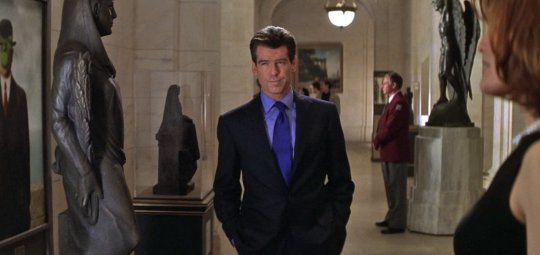
My ninth favorite movie is perhaps my most embarrassing. The Thomas Crown Affair is fundamentally a date movie that happens to be about a heist. And call me a liberal fruit bat, but the film articulates some very problematic values.
However, The Thomas Crown Affair benefits from being one of my favorite movies from my adolescence and does a lot of things right. One of these is its representation of New York City, which is not accurate in detail as much as in spirit.
As an adult I appreciate the relationship between Thomas Crown, played by Pierce Brosnan, and Catherine Banning, played by Rene Russo. There are no easy answers in the movie or in their fun yet troubled romance.
Although The Thomas Crown Affair is shamelessly materialistic its moral strength is its honest amorality. It never mistakes its main characters’ drives with a higher sense of right and wrong, which is sadly becoming the norm in today’s media.
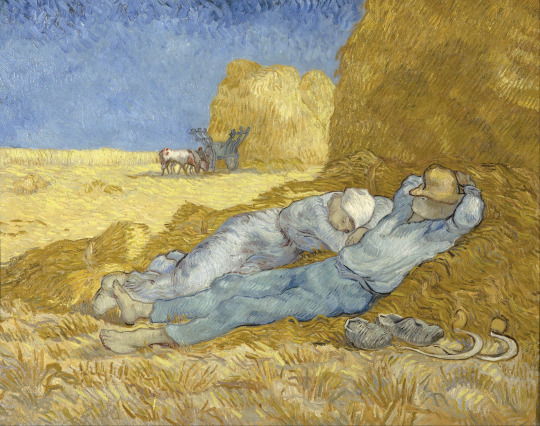
Thomas Crown is a Wall Street Mergers and Acquisitions giant with a fondness for one particular painting--Noon - Rest from Work by Vincent Van Gogh. He affectionately calls it “Haystacks.”
Late for work and stuck in traffic, he leaves his personal chauffeur in front of the Metropolitan Museum of Art to view the painting from a bench the impressionist wing. It should be mentioned that Crown brings a briefcase containing his lunch, which he eats in the museum.
He shows up later in the day at the Wall Street headquarters of his company Crown Acquisitions, having accidentally left his briefcase in the museum. Crown spends the rest of a busy day looking at his watch, waiting for the day to finally end. Crown finally leaves the office with another briefcase and returns to the Met.
I should mention that over the course of the day, a foursome of Eastern European thieves smuggle themselves into the museum hidden inside a Greco-Roman Horse (“Trojan Horse”) preparing to heist the very same wing Crown frequents. Their heist is unrealistically complex--involving crawling through air ducts, sabotaging the air conditioning and an airlift via helicopter.
When Crown arrives, he discovers the nefarious goings on and draws museum security to it. Security thwarts the art thieves before anything is stolen. But not quite.

1999 audiences knew from the trailer that Thomas Crown would steal one of the paintings. But in fact, the entire heist was orchestrated by Crown. While the impressionist wing is sealed and the thieves apprehended, Crown slides under the closing gate, steals one painting off the wall and stashes it in a briefcase hidden under a museum bench. He left the briefcase in the Museum intentionally!
And Crown is only able to make his escape because one of the gates is wedged open by the second briefcase he brought work. We later learn the briefcase was loaded with titanium.
Crown does not steal his “Haystacks.” Instead, he steals a painting by Claude Monet San Giorgio Maggiore at Dusk. The movie sets up the painting early on as the watershed painting by Claude Monet that founded the Impressionist movement, worth $100 Million.
(It should be mentioned that this backstory is made up for the movie. The Claude Monet painting that founded the Impressionist movement is named Impression, Sunrise. It is actually housed in Paris and its subject matter is superficially similar to San Giorgio Maggiore at Dusk, though less dramatic.)
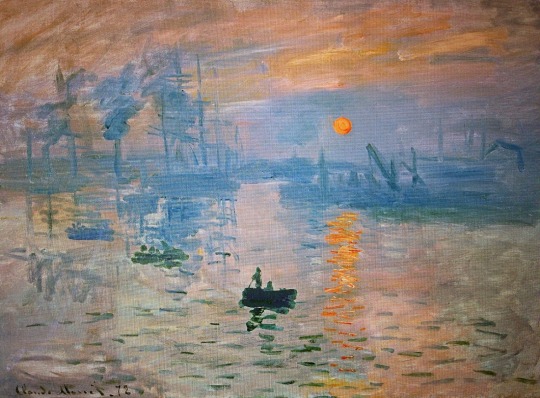
This is our first insight into Crown’s personality. Crown spends the early part of the movie fantasizing of an easier life, like the man enjoying a siesta in Noon - Rest from Work. But it is a facade. Crown is after the drama, dynamism and richness embodied in San Giorgio Maggiore at Dusk.
The above synopsis is only approximately the first twenty minutes of the film. The rest of the movie focuses on the investigation of the robbery. On the case are two NYPD detectives (“Michael”) McCann and Paretti--played by Denis Leary and Frankie Faison.
Having four thieves in custody, they want to treat the case textbook and overlook some of the unusual details. But they are joined within the first hour of their investigation by a Private Investigator named Catherine Banning, played by Rene Russo.
Her job “is the painting.” Already a nuisance to the detectives, she sits in on the Witness ID of the thieves, in which Thomas Crown is the witness. Banning gives Crown several suspicious glances, the gears in her mind turning.
After doing some research Banning discovers Crown has a habit of bidding on paintings by Claude Monet at auctions. She becomes certain that he stole the missing Monet, and after she resolves other details of the robbery McCann and Paretti believe her.
The rest of The Thomas Crown Affair involves Banning’s attempt to retrieve the missing Monet by seducing Crown--who also appears to be seducing her. While the plot develops it becomes unclear to both whether Banning is after the painting or Crown.
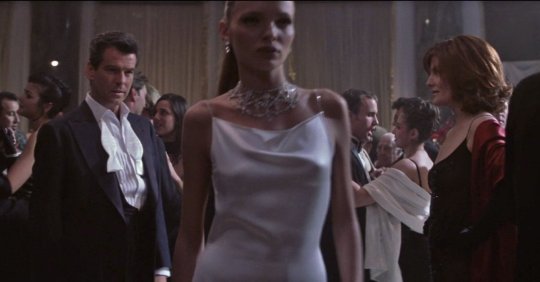
Whether or not The Thomas Crown Affair lands depends on its execution of the romance between Thomas Crown and Catherine Banning. More than half of the movie conforms to the plot structure of any modern romantic film. However, The Thomas Crown Affair deviates from romance tropes in several ways that give the film life where another film’s story and characters would drag.
(SPOILERS BELOW)
This is not to say that there are not several romance tropes littered throughout the movie. For instance, two love triangles are forced throughout the movie--involving Detective McCann and a young woman seen dancing early in the film with Crown. One of these love triangles even leads to a misunderstanding that makes Banning betray Crown to the police in the film’s climax.

Banning is also led astray by Crown’s wealth and privilege--a tropey characteristic of female romantic leads all the way into the 21st Century. This would not be distracting except that it occurs during a sequence in the Caribbean island Martinique where the film’s pace otherwise grinds to a halt.
For reasons to be discussed, these appear to be problems with the script from its most early drafts. But The Thomas Crown Affair starts to circumvent romance tropes with its first shot. If there is a theme in The Thomas Crown Affair I have come to respect, it is the couple’s incongruent needs. Thomas Crown is attracted to Catherine Banning because of personal insecurity. On the other hand, Banning is attracted to Crown because he is handsome, receptive and fun to be with.
Crown’s insecurities regarding his love life are first stirred up in his first scene when his therapist questions in session whether a woman could ever trust him. In Crown’s relationship with Catherine Banning, he tries to prove that he trusts her as opposed to earning her trust.
From this context, Crown cannot resolve by himself his insecurity about whether a woman can trust. He is going about it wrong. What’s more, trust issues are only Crown’s hangup, not necessarily Banning’s.
Crown’s insecurity is not resolved at the end of the film. At a height of tension in their relationship, Crown promises Banning he will return the stolen Monet to prove that he trusts her. Instead she passes the information to the police.
This turn of events is perhaps the strength of The Thomas Crown Affair as a romance film. It is true that Banning sides with the police in part because of a misunderstanding about Crown’s relationship with another woman. This sort of misunderstanding is typical of Hollywood romance films.
On the other hand, the film avoids a more problematic romance trope by not stating whether Banning should choose Crown or the police. Romance films are typically coded so that a couple, especially the female-gendered half, should choose their romantic interest over their other values or responsibilities. But The Thomas Crown Affair does not even make the case that Banning should side with Crown over the police.

A climactic chase follows between Crown and the police inside the Met. Crown not only returns the painting while evading the police, he steals another--The Banks of the Seine at Argenteuil by Édouard Manet. The painting by Manet is what Banning points to on their first date, saying she would steal that one if given the choice.
Banning goes to the Wall Street Heliport where Crown asks her to meet him. But he has already left and his associate gives her the painting instead. A generous gesture, but Banning does not keep the painting. She returns it to the police instead.
In that entire sequence, Crown shows that he did not fully trust her. And Banning does not reciprocate Crown’s further doting on her.
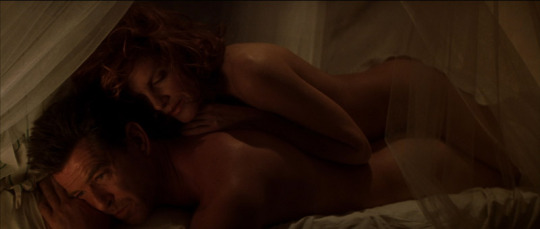
Catherine Banning’s attraction to Crown is based less on her emotional needs than for the thrill. As Crown says on their first date, “You like the chase.” This aspect is consistent with Banning’s counterpart in the 1968 film, Vicki Anderson as played by Faye Dunaway.
However, one of the major deviations between the 1999 movie and the original 1968 The Thomas Crown Affair is the remake’s “happy” ending. Crown arranges to sit behind Banning on her flight back to Europe and draws her attention by speaking in a Scottish accent.
The scene is ambiguous as to the couple’s future. The fact that Crown speaks in a Scottish brogue for his last line is a callback to the couple’s first date, when he says the hardest part of attending Oxford University was “learning to talk.” Crown finally feels free of the pretensions of English and American culture.
At the same time, Crown and Banning’s needs in the relationship are so different that it is foreseeable they are not a long term match.
As a film romance, The Thomas Crown Affair is refreshing because its romantic leads are not necessarily perfect for each other. They have their own motivations that are never completely reconciled or resolved. And that is more true to life than most Hollywood romances.
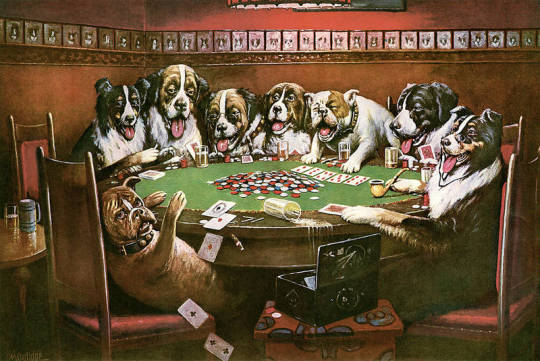
The Thomas Crown Affair’s script is written with a curious indifference to materialism. In today’s world, its tone may come off as dissonant. But understanding its perspective requires consideration of not only the era when it was written but the people involved in making the film.
The Thomas Crown Affair was one of the first films produced by Irish DreamTime, a production company founded by Pierce Brosnan and Producer Beau Sinclair. By the time a Director was signed, at least one version of the script was already being drafted. The best explanation why the film conforms to romantic comedy schlock is that its first draft was written to do so.
The early version of the script appears to have remained intact, since writing credits were still retained by Leslie Dixon and Kurt Wimmer. And since Pierce Brosnan was a producer, this means that The Thomas Crown Affair was intended as a vehicle for Brosnan. This is made apparent in the Martinique sequence, which is also where the film’s perspective on materialism is its most loud.
In the exact middle of the film, Crown takes a holiday with Catherine Banning in his island estate. As intimate and seductive as the setting is, Crown also advertises his lavish lifestyle to Banning. His seduction of Banning becomes more obvious when he offers her even more money than her commission to run away with him.
This sequence was likely included at the behest of Actor-Producer Brosnan himself. The actor has a well known attraction to tropical locales and even maintains a home in the Hawaiian Islands today. The ambiguities regarding Crown’s criminality or immorality would then be the product of indifference by the Writers and production staff.

This part of the film stands out in the 21st Century because of several scandalous stories involving Caribbean criminal havens, including the Paradise Papers and Jeffrey Epstein’s estate on Little Saint James in the U.S. Virgin Islands.
Obviously these scandals were not in the mind of the Producers when the movie was shot in the late 1990s.
But Thomas Crown is also represented ambiguously throughout the film. He is a remorseless criminal who has his hands dirtied by other schemes--bribery and offshore banking. This is consistent with the original 1968 film where Crown was more a villain than antihero. But more than the 1968 film, Thomas Crown is humanized as a protagonist and romantic lead. By association his values are also normalized.
Director John McTiernan’s similarities to Thomas Crown make the film’s perspective on materialism and white collar crime suspicious. McTiernan did more than direct. He also (uncredited) rewrote the script and used his own property and vehicles in the film.
McTiernan’s biography is also suspect. In 2000 McTiernan wiretapped a film Producer and later lied to Federal Investigators twice. Prosecution would drag until 2013 when McTiernan was finally sentenced to twelve months in prison.
During McTiernan’s first sentencing in 2006, the presiding judge publicly stated John McTiernan thought he was “above the law,” and “lived a privileged life and simply wanted to continue.”
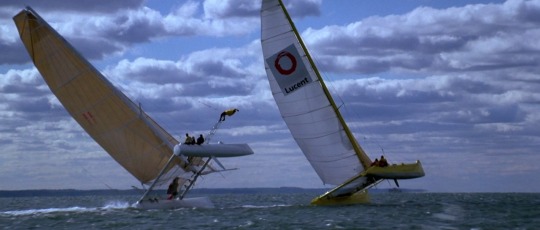
There is reason to believe that McTiernan based Thomas Crown on himself during his rewrite. Thomas Crown is shown not to be attracted to fame or a cushy lifestyle. Instead, he is a thrill-seeker with a death wish.
But Crown’s motives are never stated explicitly in The Thomas Crown Affair. Furthermore, they are muddied by the existence of a forged Monet in Crown’s possession. The forged painting is eventually discovered by Catherine Banning. Although Crown needed the real Monet to commission the forged Monet, we learn by the end that Crown no longer had the stolen painting when he first met Banning.
Although the forged Monet tricks Banning, this could not have been Crown’s intent when he commissioned it. The best explanation is that Crown intended to trick the police.
More than that, it means Crown committed his theft intent on being found out. This is curiously similar to the judge’s description of Director John McTiernan--that he thought he was “above the law.” McTiernan’s detachment from the consequences of lying to Federal Investigators twice also echoes Crown’s arrogant disrespect for the police.
There are also sociological reasons The Thomas Crown Affair is ambivalent about wealth and materialism. Public opinion about Wall Street and the U.S. financial industry was not as negative in 1999 as it is in 2021. This is partly a result of politics changing in response to current events.
At the same time, the Wall Street boom of the 1980s and how it changed New York City were still fresh in the public consciousness of 1999. Especially in 1999, where big business was not yet politically divisive prior to the Dot-Com Bust.
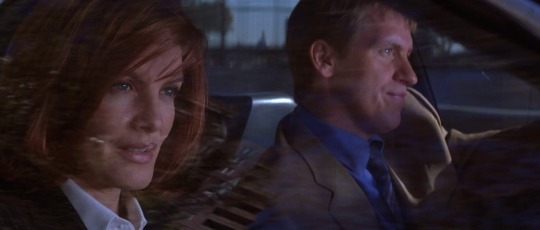
The indifference the public had for big business is embodied by Detective McCann. By the end of the movie, although Thomas Crown has outsmarted the police and museum security, McCann admits to Catherine Banning that he does not really care about catching Crown.
McCann implies that compared to cases of domestic violence and human exploitation he usually investigates, the art heist by Crown is a victimless crime. The stolen paintings only matter to “very silly rich people.”
Detective McCann is held up throughout the film as its moral center. He has legitimate care and respect for Catherine Banning--even though it is shamelessly teased as a love triangle. He is motivated to solve the case from a sense of professional responsibility. In his last scene Banning even tells him, “You’re a good man, Michael.”
But McCann’s indifference to Crown’s crimes is The Thomas Crown Affair’s moral failure. The victims of art theft are not just the owners but the public itself. Pop culture pre-Enron was similarly indifferent about fraud and white collar crime, believing the victims were only the rich and wealthy.
This indifference is a product of the era. The world would learn very shortly that costs of financial fraud and white collar crime are felt more by society than by the financial industry itself. But to Hollywood and audiences in 1999, Thomas Crown’s art theft and financial crimes were all victimless crimes.

An aspect of The Thomas Crown Affair that deserves credit is its representation of New York City. The city depicted in the film is different from the experiences of most New Yorkers, even in 1999.
Although the film is not always shot in the correct location, the city is represented well in spirit. Early in the movie, a truck driver making a delivery to the Met gripes when Thomas Crown crosses into his lane. Detective McCann similarly expresses contempt for New York City’s social circuit in a manner often overhears. “I love this neighborhood, some of these broads are wearing my salary.”
An AIDS Research Ball hosted by BVLGARI is another realistic part of New York City culture in that AIDS activism had become mainstream by the late 1990s.
The Thomas Crown Affair is shot in a part of New York City that is inaccessible to most people, yet widely advertised. And it is represented in film authentically and amorally--if for no other reason than because the film was shot almost entirely within the city.
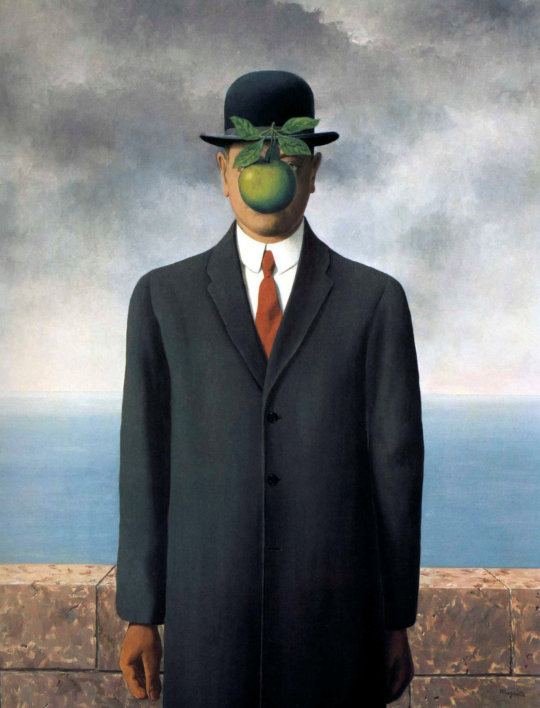
Perhaps the most widely entertaining aspect of The Thomas Crown Affair is its contribution to the heist film genre. Heist films are different from other crime movies in that the narrative usually follows the criminal’s or robber’s perspective.
Heist films are also preoccupied with how the criminal will pull off the caper. They differ from detective films where catching and identifying the criminal are the lingering mysteries.
But The Thomas Crown Affair is different from other heist movies in that the finer details of Thomas Crown’s capers are never shared with the audience. For instance, when Crown steals the Monet we are left to wonder how he evaded museum surveillance. Catherine Banning offers an explanation, but the question is never answered for certain.
Another mystery lingers when Thomas Crown steals the Manet at the end of the film. Absolutely no hints are offered as to how he managed to steal it. Part of the attraction of films like these is they leave audiences to guess how certain events occurred.
My favorite explanation for the stolen Manet is that Crown had a mole working at the Met steal the painting beforehand. That also explains how Crown obtained the information necessary to steal the first painting.
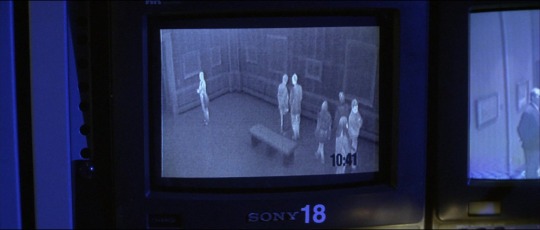
Catherine Banning’s explanation for why museum security failed to capture the first theft is that a heater was left in front of the painting. That is because museum surveillance used infrared cameras that responded to temperature, and a heater would have been just enough to interfere with the infrared camera. I should mention now that this feature of museum surveillance is one of the more far-fetched details in The Thomas Crown Affair. Especially today, since face recognition software is in such demand in cyber security.
Lack of realism in films about art or jewel theft is common within the genre, and especially true of the era’s other films--Mission: Impossible, Entrapment and Ocean’s Eleven.
The purpose of heist movies like this is wonder more than realism. And prior films have been similarly tongue-in-cheek about painting and jewel theft--such including the Blake Edwards comedy The Pink Panther.
Films like The Thomas Crown Affair are not intended to be a blueprint for future criminals. Ironically, The Thomas Crown Affair did inspire one bank robber who got away with the loot using the same costumed diversionary tactic as Thomas Crown in the film’s climactic chase scene.
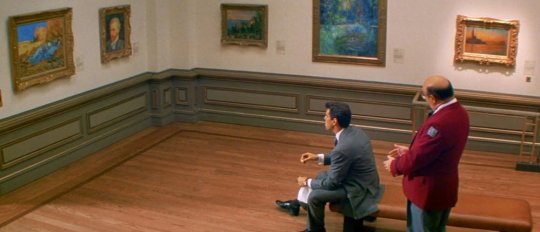
Even though I have said a lot about The Thomas Crown Affair, there are simple reasons why I am fond of the movie. It is a well-made movie, beautifully shot and secretly intelligent. It is a decent representation of New York City, despite complications in the script and budget.
The movie itself is light and entertaining and leaves it up to the viewer to make up their mind. Yes, it requires some suspension of disbelief. Yet even in that way, it treats its audience as mature adults. A quality rare in action or romantic films of any era.
-ve
NEXT POST--#8 LET THE BULLETS FLY (dir. Jiang Wen)
#the metropolitan museum of art#New York City#pierce brosnan#john mctiernan#thomas crown affair#rene russo#martinique#art#impressionism#claudemonet#edouard manet#vincent van gogh#haystack#san giorgio maggiore#denis leary#surveilance#heist film#aids activism#1990s films#cipriani#magritte#white collar crime#romance#romantic film#pissarro
22 notes
·
View notes
Text
The Characters of Nisiosin (1)

Trickster - Kumagawa
Nisioisin is a prolific writer famous for the many distinct characters he creates, and writes with a unique sort of empathy that lets them be their weird and crazy selves without judgement. Okay, with plenty of judgment. This is the start of a new series I’ve been working on which analyzes some of the common themes that appears in Nisioisin’s works with more depth, as Nisioisin is the type who reuses, and recontextualizes old ideas a lot.
The first thing we’re going to be taking a look at is Nisioisin’s take on the Trickster type character with Kumagawa. I’ll be doing Deishuu Kaiki, and Ii (Boku) to follow up.
A. Defining the Trickster.
Before we determine what a Trickster is we have to define what an Archetype is when it comes to character writing.
In theory, Jungian archetypes refer to unclear underlying forms or the archetypes-as-such from which emerge images and motifs such as the mother, the child, the trickster, and the flood among others. History, culture and personal context shape these manifest representations thereby giving them their specific content. These images and motifs are more precisely called archetypal images.
In other words they are ideas and images that reoccur in stories all around the world. For example a character like Loki has several things in common with the christian idea of satan even though they come from two different mythologies, both subvert the ‘father-figure’ king of their respective heavens, and both are responsible for kickstarting the chain of events that lead to the apocalypse scenario in both religions.
Archetypes are characters that follow certain pre-determined patterns we all recognize. Luke Skywalker is what most people would recognize as the hero of the story, Obi-Wan Kenobi is the mentor, just by thinking of ‘hero’ and ‘mentor’ you already have a pre-conceived idea of how the character is going to act in the story. This is a good guideline for analyzing the similiarities between the characters Nisioisin uses in his works.
The Trickster, Jung says, is an aspect of the shadow archetype, at least in its negative traits (see "On the Psychology of the Trickster-Figure". Examples of the trickster are Satan, Loki, etc.)
The shadow is an archetype that consists of the sex and life instincts. The shadow exists as part of the unconscious mind and is composed of repressed ideas, weaknesses, desires, instincts, and shortcomings.
If the Hero is what everyone thinks a good guy is, then the Shadow is playfully the opposite of they. They are what everyone thinks a good guy isn’t. They represent the repressed aspect of our minds, and exist to call into question the common order.
The trickster, obviously, deceives, often playfully, sometimes painfully. The Fool is a shadow figure distressed by some unconscious lack of power, often driven by greed or an inordinate desire for fame (all archetypes), who projects his or her inadequacies against scapegoats as described above. The Fool is not always negative, of course. A relatively benevolent form of the fool is the Clown, who is more aware of his or her trickster aspect, perhaps, than is the fool. [Source.]
The trickster is what the hero is not. They are the shadow the hero casts. While the hero’s domain is the light, the trickster often works in the dark, behind the scenes sneaking around in the shadows. The hero is often straightforward, the shadow deceives and obfuscates. The hero is conventional and the trickster unconventional.
In mythology, and in the study of folklore and religion, a trickster is a character in a story (god, goddess, spirit, human, or anthropomorphisation), which exhibits a great degree of intellect or secret knowledge, and uses it to play tricks or otherwise disobey normal rules and conventional behaviour. he trickster crosses and often breaks both physical and societal rules. Tricksters "...violate principles of social and natural order, playfully disrupting normal life and then re-establishing it on a new basis."
[SOURCE.]
To simplify there are four rules I am going to set as reoccuring in Nisioisin’s use of the Trickster Archetype:
Introduced as a Villain
Subverts Expectations
Lying, Liar who Lies
Inherent themes of Nihilism
1. Introduced as a Villain
Appearances can be deceiving. It is the trickster’s goal to deceive your expectations, and in that they subvert the natural order. In most stories the hero is good and the villain is bad. Straightforward so far, yes? Nothing is straightforward when a trickster is involved. Kumagawa Misogi is someone who is introduced and built up as the ultimate enemy of Kurokami Medaka. A girl with a noble goal of trying to make everyone happy. Therefore anyone who opposes her would have to be ignoble, right?
Kurokami Medaka brings out the best in people, and Kumagawa Misogi brings out the worst. That is the simple, black and white comparison that we’re given between the two of them at the start of the manga.
Kumagawa is so inhuman when we first meet him that for the first 52 chapters of the manga, when other characters refer to him and as he’s built up as an antagonist his face is always obscured. He’s not even seen as human in the eyes of others.
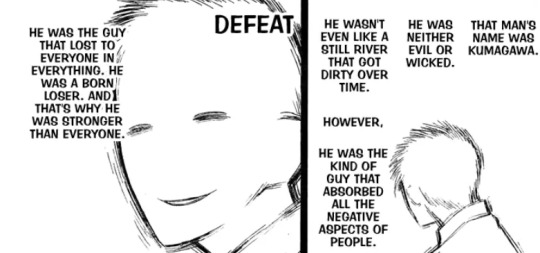
However, this simple idea is subverted by the manga itself. Medaka and Kumagawa are compared not as opposites but rather as complemtnary forces who not only have several things in common with one another, but also play into each other.

Kumagawa is someone who can uniquely understand Medaka’s point of view in a way other people cannot. He’s not someone who opposes Medaka, but rather someone set up to oppose her. Kumagawa is not only aware to some extent that Medaka is the hero of the story, but he’s chosen to make himself the villain.
2. Subverts Expectations
The entire point of Kumagawa’s arc is that even the absolute scariest types of people the minus, aren’t true villains of the story, even when they don’t want to be sympathized with, even when they don’t want to be saved, they are deep downs still people.

Kumagawa’s arc intentionally sets up the idea that some characters are natural villains who don’t want to be saved, only to subvert that idea in the end. Tricksters are subversive, they exist to flip standard notions of good and evil, black and white ideas on their head. They are transversive, once they have played their role in the story it is impossible to think of things the same way again.
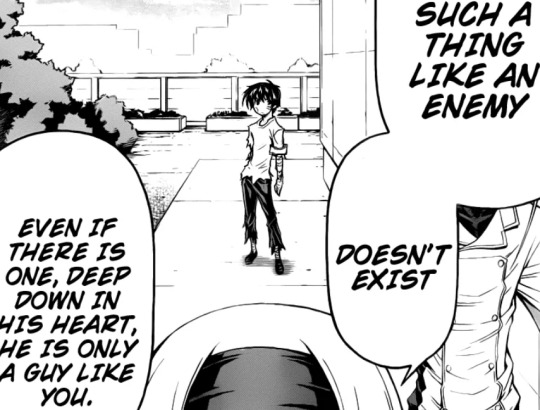
Kumagawa is a character who exists to subvert what we call traditionally binary opposites. That is ideas that we think oppose each other. Winners and losers, strength and weakness, talented and untalented, all of these ideas tie strongly into Kumagawa’s character.

Ajimu brings up Kumagawa’s bitterness towards the status quo. The people who are happy are the ones who are currently in power. They are the ones who are able to work hard, they are the ones who are able to have friends, they are the ones who always win in the end.
Kumagawa’s original goal is to flip those ideas on their head. To show that even people who are outside the power structure, outsiders like him, are able to have friends, to work hard, and to win.

By doing this he subverts the natural order and turns it around. This is what comes to a head in his fight with Medaka. Usually it would be the winner is the strongest, but the idea is flipped in that fight it’s proven the one who loses more and climbs their way back up is the strongest one.
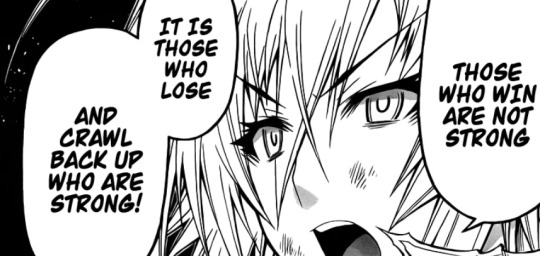
There is strength in weakness and weakness in strength and these ideas never play in the straightforward ways we think they will. That’s why Kumagawa who identifies as weaker than anyone else, is able to easily subvert the balance of power tip it in his favor and overcome strong people.
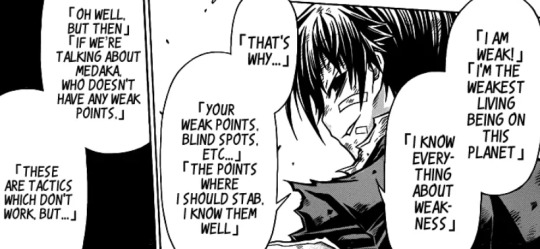
3. Lying, Liar who Lies
Basically Kumagawa lies as compulsively.. He says everything in [brackets like this] and it's like always speaking and using airquotes after everything you say. It makes everything he says sound completely insincere. It’s also a pun for ‘To Show Off’ meaning he exaggerates everything he says in order to look cool.
Kumagawa will just blantantly lie at times for no reason other than to lie. One of his habits is to claim things aren't his fault when they obviously are. His introduction is screwing everyone to a wall, and then standing there covered in their blood go [I'm not the one who did this, it's not my fault.] His introduction is him rattling off lies mainly to confuse people and make himself impossible to read.

The key word is once again these expectations. The trickster uses lies as a mean of controlling the expectations of others, playing around with them and he gains some measure of power over this. A trickster is often not very traditionally powerful and has to rely on his wits to get by.
Kumagawa's life is pure chaos and basically everything ever will go wrong for him, so he tells lies to have some kind of illusion of control over that chaos. People who see life as a story do so to give themselves agency, to trick themsleves into believing they’re the ones telling that story.

Kumagawa pretending that the world is a manga, gives him the illusion that he can read, and anticipate the world like he would a weekly shonen jump manga. When in reality the world is what it’s always been, complete chaos. Kumagawa tells himself that lie to obfuscate himself because he finds safety in those lies, in no one knowing who he truly is.
He finds his identity in those lies, which is why he intentionally plays the role of the villain when he could be a hero. Kumagawa will lie about his identity, first to be a bad victim, to be an ugly victim, he pretends these things have value because it's all he has. He only has negative experience of the world and the trauma he’s asquired so far and that’s what he finds familiarity in. Kumagawa finds identity in being the world's biggest loser.
4. Themes of Nihilism

Kumagawa is a character who directly confronts Medaka’s assertion that she was ‘born for a reason’, by asserting the opposite. That there’s no goal in life, no point to being alive, and therefore humans are born for no reason.
While that seems like a wholly negative statement at first, the point of Nihilism is to question established ideas and power structures. It’s to dismantle what we are told matters, and what we are told has meaning and instead come to understand our own meaning.
If Medaka is an existence desperately trying to give meaning to life, then Kumagawa is trying to reject the assertion that life has meaning. It’s understandable why. The values that are said to hold true for everybody else have never once held true for Kumagawa. If you work hard you’ll win. Bad people are the only ones that suffer. If you ask for help you’ll get saved. Kumagawa has witnessed all those things he is told should be true about the world proven as falsehoods, and because of that his response is one of rebellion against the order.
Nihilism is a step on the way to existentialism.
In the most basic terms possible it's like. Rejection of societal meanings and values that you are told about -> Rejecting everything which leads to moral nihilism (nothing has meaning boo hoo) -> Realization that if everything is just made up value you can make up your own, and that you're not freed from society's obligations and can pursue what you want (sunglasses nihilism, party time).
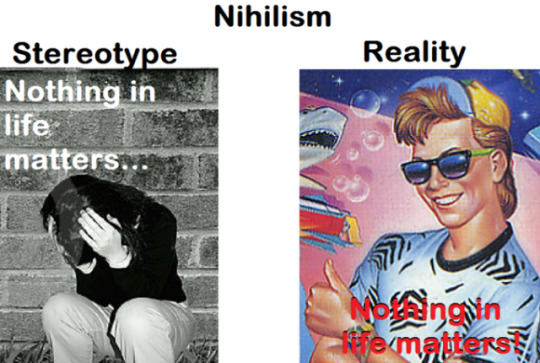
Kumagawa as a character is firmly in the middle step. He’s a character who rejects everything, because he finds his identity in his rebellion against traditionally held notions.
Kumagawa is a character trying to reject what everyone else tells him is meaningful, and instead trying to create his own meaning. He’s trying to find the positives in a life that’s literally nothing but suffering. That’s the point of his whole complex about minuses, that people who have everything go wrong for them still have a reason to smile.
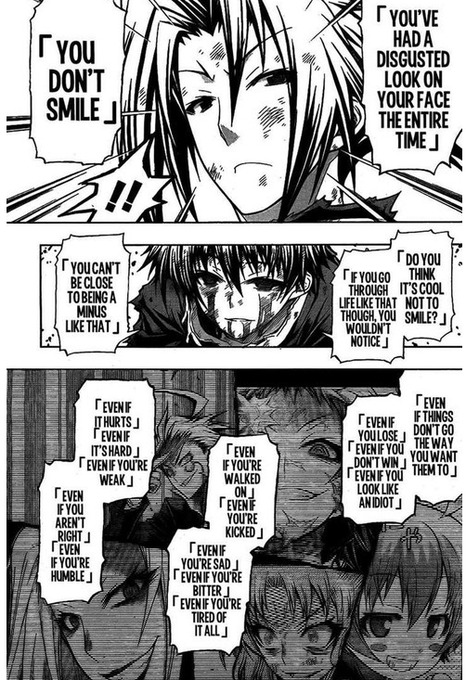
Basically Kumagawa's philosophy becomes, if I can endure all of this and still keep on laughing and smiling, then you can too. Even living the worst life possible where you can't accmplish a single thing, and can't amount to anything, you can still find something to laugh and smile about.
It’s a philosophy unique to him, and one that he could only come to by challenging the established norm. Not only does Kumagawa’s nihilism help the minuses, but he also ends up helping Medaka herself as she’s the one who has to let go of the ‘reason that she was born’.


Just like Kumagawa, Medaka has to go and seek out her own reason. As in the end the two of them as a pair, hero and villain, are not opposites but rather two sides of the same coin. They are complentary forces that contain parts of each other.
They are both ultimately, whether trickster or hero, very human characters. The roles in the story they play only serve to flesh out their humanity. Which is another theme in Nisioisin’s writing, but we’ll continue that in the next posts.
#kumagawa misogi#medaka box#medaka box meta#nisio meta#nisioisin#mb meta#kurokami medaka#trickster#jungian archetypes#jung
66 notes
·
View notes
Text
It Can Be
Teen and Up | 2.8k
While on a stakeout, a burning question is asked leading to unexpected revelations and a conversation that is long overdue. Set mid to late S6.
This story was written for the X-Files Secret Summer Fanfic Exchange (2019) created and orchestrated by OnlyTheInevitable\\ @gaycrouton.
Prompt: "I'm ok with twists or turns, fluff or angst, but true to characters."
A gift to Pstafford3 (Twitter)
Beta by: @kikocrystalball and @admiralty-xfd
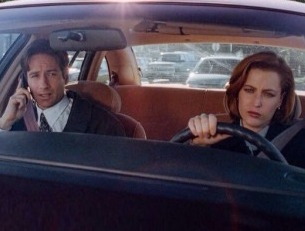
"Well, you need a father, of course. I can get you genetic counseling on finding an anonymous donor if that's what you want... unless you already have someone in mind."
"Yeah... I, uh... I just have to figure out how to ask him."
Flashback in 8x13 — Per Manum
|| 2 days later ||
"If Emily had lived … do you think I could have done it? Been a single mother?"
They've been sitting in a car outside of an abandoned warehouse for nearly an hour indulging one of his hunches. Mulder had anticipated catching the third degree for calling her at 2 A.M. on a Saturday morning, but this is not the degree he expected, so he proceeds with caution.
"That's a rather loaded question."
He doesn't say it to be abrasive or to deflect away from the seriousness and vulnerability he hears in her voice. He says it because he's not sure what else to say.
Their interactions following the revelation of her stolen ova have been strained. While Scully hasn't outright ignored him or overtly lashed out at him, she's certainly maintained a respectable distance, keeping her fury and frustration hidden beneath layers of masked professionalism. After their discussion in the elevator, Mulder had braced himself for fire and brimstone, but so far, all he has been afforded is silence, which is far worse.
Two weeks have passed, but the tension is still unbearably high, leading him to believe that she has conferred with several specialists of her own choosing and has now reached the same conclusion he arrived at little over a year ago — the ova are not viable. While he can appreciate her anger, he doubts that she fully grasps his intent in keeping it from her or the depth at which it has eaten away at him.
When he discovered her stolen ova back in 1997, he immediately took them to a specialist to be assessed, and when he hadn't gotten the answer he wanted to hear, he had them sent them to another one. That pattern held for well over six months before he finally relented.
Keeping it from her had been an easy decision to make in the beginning given how gravely ill she was, but as her health returned, his justification in continuing to do so had been more complicated. Ultimately, he had kept it from her out of pure, unadulterated hope. Hope that there was an answer — a different path that he could take that would lead him to something other than the devastating news he currently had: the ova are not viable.
How in the fuck was he supposed to tell her that? On top of everything else, how could he possibly tell her that he had found her ova, but that there was nothing to be done with them? That they were useless? He couldn't even say it to himself in the mirror without becoming physically ill.
If the syndicate possessed the power to cure her cancer, then was it not reasonable to assume that they also possessed the ability to reverse her infertility? Somehow turning unviable ova into something viable? It didn't seem any less likely than curing incurable cancer.
Scully was the scientist, not him. Yet, the leading experts in the field had already told him that he was wasting his time and money looking for alternatives and storing ova that were not viable. Within a year, he was convinced that there was nothing conventional that could be done and was unable to stomach telling Scully that the fate of her ability to conceive a child of her own making would rest in the hands of the same monsters who had taken that right from her to begin with.
He valued his partnership with Scully more than anything, and he would move mountains or die trying before he would ever hurt her. And this news — this secret, would undoubtedly hurt her, so instead of telling her the truth, he had kept it from her and continued to search for solutions on his own with the hope that when the time came, he would have an answer. But in the blink of an eye, weeks turned into months and months into years, and still, there had been no resolution, conventional or otherwise.
And then came Emily.
Emily's sudden appearance changed everything. She was living proof that Scully's ova had been viable at one point, or that perhaps, out of all those extracted, he had just been unlucky enough to grab the one vial that was useless.
That was the other issue. Telling Scully the truth would require another harmful and devastating admission. There were more out there, and they were currently unaccounted for. When he returned to the research facility to retrieve the other vials, they were gone, either removed or destroyed, and there was no way to determine which since the facility had been burned to the ground.
The matter was further complicated by his degree of uncertainty with regards to her current medical status and the nature and permanency of the effects of the experimentation that was performed. While it was clear that they had taken a substantial amount of Scully's reproductive material, it was unclear if they had taken everything. Had what was in that drawer been a representation of everything they had taken? Or had there been more stored elsewhere? Had the extraction left her completely barren? Or had it merely ensured that it would be difficult for her to conceive naturally? If so, did she know?
Seeing her with Emily had only deepened his despair. He should have told her about the ova then. Hell, he should have told her as soon as she returned to work, months before Emily ever came into the picture, but he continued to hold back, having convinced himself that all he needed was more time. But all of that changed two weeks ago when he found Scully standing in a daze on the elevator. In that moment, every argument and justification he had ever made crumbled.
He couldn't keep it from her any longer. Not when she had brought it to him directly. She deserved to know the truth, and he had already kept it from her for far longer than he should have.
This is how Mulder came to be the asshole who told his partner about her stolen ova on an elevator.
"So you don't," Scully says, breaking their silence. "You don't think I could have done it."
There's an edge to her voice that makes him inwardly cringe. It comes out matter-of-fact, but Mulder knows better.
"I didn't say that. I just said it was a loaded question," he replies, doing his best to choose his words carefully.
"You either do or don't. I wouldn't have asked if I didn't want to know."
The bite in her voice is unmistakable. Scully is pissed, and frankly, she has a right to be. He just wishes that he could find a way to articulate his intentions to her. While he's well aware of the fact that he can be a certified asshole, he would never do anything to intentionally harm her, and he knows that underneath all of the anger and hurt, she knows that.
Everything he has done, he has done to protect her.
"Scully—"
"I asked you to back me up … to testify on my behalf and you did, but there was … hesitancy there. From both you and my family."
"I can't speak for your family, Scully. I can only speak for myself, but you're right, I did have reservations … but none of them had anything to do with you or your ability to parent or raise a child."
"Then—"
"Three years after your abduction, a child shows up with your DNA. I was questioning the validity of it and what it could mean, especially in light of what I knew they had taken from you. Had the circumstances been different, I would have been happy for you … elated even, but instead I was terrified … for you and for her … and at the same time I was furious."
"Furious?"
"They took something from you that they had no right to take … something that was yours to give to a person of your choosing. And Emily? She didn't deserve … no child deserves to be a pawn in someone else's game. I know that better than most."
The silence that ensues is thick, but instead of letting it hang, Mulder presses forward.
"I just had a feeling … a feeling that it wasn't real."
"She was real, Mulder, and she was mine."
"Yet she wasn't. She bled green."
She doesn't argue with him on this point because she can't, but she's clearly not pleased with him for making it to begin with.
"I shouldn't have kept this from you, Scully. I know that, and I'm sorry."
"Yet you did it anyway. For almost two years."
"You've never asked me why."
"Because it doesn't matter. You had no right."
"It does matter. It matters a lot."
"Okay. I'll bite. Why, Mulder? Why did you think that keeping me in the dark about MY OWN genetic material was a good call for YOU to make? Were you afraid that I would break down and check myself into a psychiatric ward? Or was keeping it from me more about your impending fear of me leaving you alone to chase monsters in the dark?"
The heat radiating off of her body and venom in her voice startles him into silence.
This is the reaction he anticipated two weeks ago, but the anticipation hasn't diminished its impact. It would be easy in this moment to give it right back to her and let his rising pulse predominate, giving her the fight she's clearly looking for, but he won't. If she wants to be angry, that is certainly her right, but she is at least going to have all of the facts straight first.
"Do you honestly believe, after everything that we've been through, that I would ever do anything to intentionally hurt you, Dana?"
The use of her given name is intentional. It's a quiet, subtle ceasefire, and the effect it has is immediate. As soon as it rolls off of his tongue, she stills, the fire in her eyes dissipating as her attention shifts. Holding her gaze, he lets the silence that follows hang, cooling the air around them before he continues.
"The look of devastation that crossed your face … I would have done anything in the world to keep that look off of your face, so yes, I kept it from you. I consulted every credentialed doctor and accredited research facility in the country and refused to let them destroy them despite being told repeatedly that they weren't viable. I wanted to find a solution, even if it wasn't a conventional one … so that one day, when I did tell you, it wouldn't be the news I have now. Keeping this from you was wrong, and you have every right to be angry but don't think for a single second that it didn't weigh on me, because it did. It still does."
The silence that follows is heavy, the intensity of the moment driving Scully to avert her eyes. The fire that filled them earlier has fled, making way for the emotions brewing underneath. She's hurt, devastated even, and now, she's trying desperately not to cry.
Pulling his handkerchief out his pocket, he hands it to her and waits, unsure of what to say or if he should say anything else at all.
At this point, it's clear that this stakeout is a bust, but he doesn't want to make it more awkward or break the moment by starting the car and pulling away. Instead, he fixes his eyes ahead, giving her a bit of privacy as the light of dawn begins to creep up over the horizon.
"You still haven't answered my question," she says after a few moments have passed.
Her voice is low, but the tone she sets requires no translation. Scully is a woman of action, so the fact that she has returned to her original question is her concession. While she may not like or agree with what he has kept from her, she has forgiven him.
"If you're asking me if I think that you would be a good mother, then the answer is yes," Mulder replies.
The lack of hesitancy in his response appears to surprise her, shifting her gaze back to his.
"Then why the—"
"You asked specifically about being a single mother," he replies evenly.
"Yes, and?"
Sighing, Mulder shifts uncomfortably, unsure of how much more he should say if anything at all.
"Well, I just don't see that as being an issue, and I'm not saying that because I think you are incapable of doing it alone."
"They why are you saying it?"
"Scully … look … I …," he says, taking a deep breath. "I already feel like I'm six feet under, I don't want to say anything to make it worse."
"That ship has already sailed, so you might as well just say it."
Sighing and regarding her cautiously, he relents and says what's on his mind. If she wants an honest answer, he will give her one. Given all he has kept from her over the past two years, he owes her that much.
"It's just … you have too much to offer someone else to be forced down that road alone."
Of all the things she expected to come out of his mouth, this was clearly not one of them. The blush rising in her cheeks does little to hide her surprise at his admission. He would feel more guilty for making her uncomfortable if she didn't look so radiant. Even with minimal sleep and tear stained eyes, she's still the most beautiful woman he has ever seen. That much hasn't changed in the six years he's known her.
"Look," he says, returning his focus back to the warehouse. "All I'm saying is that if raising a child is something you want to do, then there is absolutely no reason for you do it alone unless you just want to."
"Mulder, I haven't been asked out on a date in years."
"I find that hard to believe."
"Well, it's true."
"Men can be idiots."
To this, he receives no argument, only a ghost of a snort as Scully relaxes more deeply into her seat.
"Well, then, I guess all the men currently in my life are idiots."
"Guilty as charged," he says, raising his hands into the air.
Their soft laughter echoes in the car briefly before again returning them into silence, but unlike the silences that preceded them, this one is comfortable. Mulder knows he should quit while he is ahead, but he can't.
"You're a lethal combination, Scully. Not all men can handle that."
"Lethal combination?"
"Stunning and intelligent. Typically, you get one or the other … both are… well, a bit rare and can be a bit intimidating."
Scully doesn't say anything in response, but the pink hue rising up through her neck and into her cheeks warns him that he's teetering dangerously close to the edge. He doesn't want to embarrass her or make her uncomfortable, but he also wants her to know that he does see her, not just as a partner but as a woman. A woman who has a tremendous amount to offer, little of which has anything to do with her reproductive status.
When she doesn't speak, he begins to backpedal a bit, not wanting to end on a note that is upsetting or uncomfortable.
"I'm sorry, I didn't mean to make you uncomfortable. Look, I think you will be an excellent mother with or without a partner, so if that's what you're asking, then that's my answer. Forget the rest."
"You didn't make me uncomfortable Mulder," she says quietly, avoiding his eyes. "It's just … not something I'm used to hearing."
"Hmmm … sounds to me like you need better friends, or maybe just a better partner. One who actually encourages you to get out of the car."
"Mmmm … my partner can certainly be an ass, but he's grown on me. And most of the time, I don't actually mind being in the car."
"And the other times?"
To this, she only smirks, nodding her head in a manner of dismissal and averting her gaze back to the warehouse. When it's clear she's going to let the question hang without answering it, Mulder changes the subject.
"Why … why bring this up?"
He asks the question half expecting her to skirt around it without directly answering it, but she doesn't.
"Because I'm almost 35. There are options out there … I just have to decide whether or not I'm going to take them."
"Well, whatever you decide, you'll have my full support, Scully."
The silence that follows surprises him, causing him to shift his focus back to her and study her expression. What he finds is as intriguing as it is troubling. There's clearly something weighing on her mind. Something she isn't sharing.
"I wish it were that simple."
Reaching out, he takes her hand in his and gives it a squeeze.
"It can be."
#the x files#msr fanfic#msr#conversation in the car#mulder and scully#angst#X FILE SUMMER FANFIC GIFT EXCHANGE 2019
90 notes
·
View notes
Text
Quarantine Movies, Part 3
OLD BOYFRIENDS (1979) dir. Joan Tewkesbury
Not often I watch a movie and feel like “What the fuck is happening?” but I did with this one, written by Paul Schrader and directed by the screenwriter of Nashville. Talia Shire stars as a woman getting back in touch with her old boyfriends. She’s… recovering from a nervous breakdown? Sort of out for revenge? One ex hooks up with her again, and then, once abandoned, hires a private detective to track her down. A little boring at first, and then becomes baffling for most of its middle. John Belushi’s in it, playing a kind of pathetic schlub that feels convincingly like “the real Belushi” to me in the sense of me finding it uncomfortable to watch. I think maybe the film can be understood as a take on feminine psychosis in contrast to the masculine psychosis found in Schrader’s Taxi Driver screenplay. The psychosis here being this lack of self-knowledge that leads to manipulating people ostensibly towards the end of finding love.
KLUTE (1971) dir. Alan Pakula
Feel like I got the impression this movie was a joke from somewhere? Some Murphy Brown reference or something, playing to consensus of losers. (Edit: The joke’s in Wet Hot American Summer, but doesn’t really contain a value judgment about the movie.) It’s not great by any means but it’s not particularly tawdry given the subject matter. It is confusing that the movie is mostly about Jane Fonda’s call girl character, but the movie is named after Donald Sutherland’s character, who’s a detective. Maybe the joke was always just that people thought Jane Fonda played Klute. Movie digs into the sex worker’s psychology in a way that feels contemporary, except contemporary discourse doesn’t really allow for psychological insight, in favor of empty gestures towards representation. Sutherland’s out to solve a mystery, Fonda falls in love with him: I really did think this was smart in depicting a relationship where person was uncomfortable with the act of falling in love as running counter to their techniques of emotional distancing, except, I guess, for the fact that this is depicted in scenes of Fonda talking to her therapist that spell out what’s happening rather than depict this in a more organic way. But that it feels sort of shoehorned in is cool because the movie then largely has this mystery narrative it’s about. It is a little dull and could stand to be shorter, though the musical score does some nice grooves with dissonant elements on top, vaguely Morricone-style, though of course he’s got a deep body of work.
EYES OF LAURA MARS (1978) dir. Irvin Kershner
Criterion’s description of this chracterizes it as an “American giallo,��� which seems about right. About a woman (Faye Dunaway) who takes violent/erotic photographs (shot by Helmut Newton) that coexist in both advertising and art gallery contexts. She starts having psychic visions of murder, the police are investigating her because some murders seem modeled after her photos, although that is not the case with any of the murders she has visions of, which then start to involve people she knows. So, like a giallo, there’s a lot happening, an interest in lurid style, and a disinterest in internal consistency as things ratchet up, and the twist ending (that the cop she started dating has multiple personality disorder) falls within that pattern as well. Not as good as the best Italian giallo, (which would I guess be Argento’s TENEBRE) or for that matter, the slasher movie HAPPY BIRTHDAY TO ME, which is an American movie insane enough to exist in the same conversation.
THE GETAWAY (1972) dir. Sam Peckinpah
Steve McQueen gets out of prison and is immediately set up by the prison official, who his girlfriend (Ali MacGraw) slept with, to rob a bank. He gets double-crossed, and then goes on the lam with his girlfriend. While in the past I sometimes feel like I am listing the names of the actors as endorsements, I’m not really doing this with the cast of this movie or Old Boyfriends. Good action sequences and suspenseful moments. Feel like the iconic images in this are McQueen with a shotgun, blowing up cop cars. Peckinpah directs from a Walter Hill screenplay adapting a Jim Thompson novel. This predates Walter Hill directing movies for himself, but it’s interesting how much more flash there is to the action here than there is in The Driver, you can sort of detect certain elements as being Hill’s interest (like the suspense of being pursued) and other stuff being Peckinpah, like the baroque explosions of violence. I like all of it.
KATE PLAYS CHRISTINE (2016) dir. Robert Greene
This isn’t very good. One half adaptation of the Christine Chubbuck story with a documentary about Kate Lyn Sheil. Sheil’s good in other things, this feels like a failed experiment. Weirdly this came out at pretty much exactly the same time as a movie about Chubbuck starring Rebecca Hall? The Rebecca Hall movie’s pretty great, and is an interesting performance, I would be interested in watching a conversation between the two actresses.
BRINGING OUT THE DEAD (1998) dir. Martin Scorses
A rewatch. Nicolas Cage plays an ambulance driver, Scorsese directs from a Paul Schrader screenplay. I like Nicolas Cage a lot, I like the cinematography in this one. I knew I would enjoy this, didn’t remember John Goodman being in it, Mary Beth Hurt is really good in it, mentioned her being good in Light Sleeper too, didn’t realize she’s Paul Schrader’s wife. Insanely hectic energy, shot through with hallucinatory holy light. Patricia Arquette is probably the weakest link in the cast, though it is her different energy that enables her to seem like a potentially redemptive figure for Nicolas Cage.
RAGING BULL (1980) dir. Martin Scorsese
This one’s a classic, but I didn’t like it the first time I saw it, over fifteen years ago, I think on account of being hungry at the time. Still, probably not my favorite Scorsese. The dialogue is interesting, due to De Niro’s character having a high level of aggression and paranoia, where pretty much everything that gets said to him he responds “Why do you say that?” which lends short scenes this circular quality. This reveals his character, in an efficient way, even though it makes the scenes feel insane and somewhat circular.
HOPSCOTCH (1980) dir. Ronald Neame
I liked this one a lot when I saw it years ago, didn’t really know the director’s pedigree came from doing Alec Guiness comedies. I don’t normally rewatch movie but my memories of this were very pleasant in a way suggesting it would be comforting. Walter Matthau plays a spy who is retiring but who gets everyone mad at him, which makes this kind of Prisoner-adjacent. He runs around, being the smartest guy in the room, having fun at being able to outsmart intelligent agencies. All of the globe-trotting of a James Bond kind of thing, but with none of the bloodshed. No one dies in this, uptight people just get mad at Walter Matthau being cool.
NIGHTFALL (1956) dir. Jacques Tourneur
Tourneur directed the original Cat People, which I love, and Out Of The Past, a classic noir I was not fond of when I saw it in college. This one’s good too, adapting a David Goodis novel. I know Goodis from a piece in Jesse Pearson’s magazine Apology, that makes the case he’s the best writer of crime fiction, on a sentence level. The dialogue’s good in this, but there’s also a cool structure: Following different characters, with it being fairly unclear what their relationship is to one another for a while, some flashbacks reveal things. The characters in this are pretty likable, Anne Bancroft is the female lead and the romance is believable. She plays a model, it’sf ascinating to watch movies made by a studio and realize they have the same woman designing gowns for all of them. Like they have the glamour provided in-house because it’s recognized that’s part of what people go to the movies for, but the the films don’t become ads for the designer or anything, like the way Jean Paul Gaultier’s designs function in The Fifth Element or something. Theme song is sung by Al Hibbler, who cut a LP with Roland Kirk.
5 AGAINST THE HOUSE (1955) dir. Phil Karlson
Criterion Channel has a collection of noir films Columbia put out, this is one of them, with a pretty good-sounding premise: Kim Novak is a part of a group of college friends that set out to rob a casino, but one of the group’s PTSD sabotages it. It ends up not really working as a heist film, for a number of reasons, one is that the “perfect crime” they engineer is not that intricate, the other, more important element is the characters are unbearably smug in a way that makes them really hard to deal with. Novak’s good in it, but no one else is: While the men are supposed to be funny, but aren’t, Novak sort of just has to be beautiful. She sings songs in this, and maybe there’s a voice double, but it seems she has a good singing voice. You can probably skip this one.
THE BIG HEAT (1953) dir. Fritz Lang
Not as masterful as the films Lang made in Germany, but still really good. A cop investigating a murder quickly gathers that a conspiracy is afoot, people make mysterious phone calls immediately after he interviews them, he gets his life destroyed, but keeps going. Gloria Grahame (who’s also in Nicholas Ray’s amazing In A Lonely Place) is great as a gangster’s party-girl-who-loves-money girlfriend who has her beauty and then her life taken away from her. There is an element of feeling like you’re seeing cliches be run through their paces, but I don’t mind, given the pacing. It’s mean enough you don’t know how dark it’s going to get. Jocelyn Brando, Marlon’s sister who also appears in Nightfall, gets a nice role in this.
MURDER BY CONTRACT (1958) dir. Irving Lerner
Oh, this one rules! Although I knew none of the people involved in it, everybody’s great. It feels slow as you watch it, it’s deliberately paced and seems to appreciate every scene on its own terms as a point of interest, rather than rushing through a plot. The score seems like it’s very close to just one instrumental piece, being used over and over again. About a dude, (who’s also in Kubrick’s The Killing, it turns out) becoming a professional hitman, and then flying out to California for a bigger job, where he has two people minding him. The hitman’s psychosis is not over the top, he just seems very self-contained, in a way that gets a lot of (almost) comedic mileage out of his interaction with other people
INVENTION FOR DESTRUCTION (1958) dir. Marel Zeman
This movie looks REAL weird and I have no idea how they got the effect? The degree of artificiality is highly distracting, in a way I don’t have a problem with in Guy Maddin or whoever. The whole thing sort of looks like the portraits of people that run in The Wall Street Journal? There are lines on EVERYTHING, like the sets are being made in this patterned way to replace color values. Everything looks artificial, but also collaged together. “Freely adapted” from Jules Verne, this involves boats, explosions, heists, etc. but all done in this sort of deep-focus theatrical staging that seems to combine animation and live action but in a way I can’t work out but also isn’t enveloping or convincing.
MAY FOOLS (1980) dir. Louis Malle.
I like a lot of Louis Malle, this seems vaguely like a deep cut, as I believe it’s unavailable on DVD. It takes place in France during the May ’68 protests, but is about a family getting together for a funeral/reading of a will. It’s suffused with weird free-flowing sexual energy, like everyone’s down to commit incest? Sort of in the name of revolution, but understandable as a movie in terms of being very french, and maybe something of a light comedy. (While Murmur Of The Heart also has incest in it, and is not a comedy, it’s very French.) People flirt with each other a lot, this is a pleasant watch if you are under quarantine and are fantasizing about casual sex or the overthrowing of the political class.
MON ONCLE D’AMERIQUE (1980) dir. Alain Resnais
This, too, is very French. The spine of the movie is Henri Laborit lecturing, lending the film an essayistic aspect, illustrated with footage of lab rats, but also footage of people wearing mouse heads and human clothes, the best parts. The guy’s theories seem agreeable to me but I don’t know what other people think about them. They’re illustrated by the fictional life stories of three characters, whose lives intersect eventually in their adulthood, though the film starts with them as children. Resnais is interesting, I’ve seen very few of his films but they’re all radically unique, though united by this intellectual edge.
FUGITIVE KIND (1960) dir. Sidney Lumet
Lumet also had a long and varied career, but I essentially view him as a highly-skilled journeyman, I guess due to snobbish bias gleaned from secondhand takes. I’ll watch pretty much any of his movies though, and so I watched this Tennessee Williams adaptation. Not sure I’d seen Marlon Brando in anything before, though I thought it was funny to say I possessed “the raw sexuality of a young Marlon Brando” in college. This whole movie is about how hot Brando is, and how all women want to fuck him and how all the men resent him. You would think the heterosexual male default would be to not notice how hot a dude is, but Brando is both physically ripped but with a feminine face that makes me “get it.” There’s a poetry to his sensitivity, but also an element of threat to how basically everyone who gets along with him is at odds with the racist, patriarchal, and parochial attitudes of the small towns he travels through.
MURDER ON THE ORIENT EXPRESS (1974) dir. Sidney Lumer
This is an Agatha Christie adaptation, where Hercule Poirot is played by Albert Finney, amongst a large cast of huge stars who are both hamming it up and not really doing anything. After watching two movies with Natasha Richardson, was nice to see her mom Vanessa Redgrave in something, though it’s a small part. The ending, where the detective works out that everyone schemed to commit the murder together and then decides that he will let them all get away with it, is fun, though by and large the “comedy” here feels a bit dated. This kinda feels like something that you would’ve seen already after having caught bits and pieces of it on basic cable growing up.
2 notes
·
View notes
Text
rewatched the aladdin trilogy because i had free time and there’s a remake coming out and, boy, do i have thoughts:
section 1: aladdin is a normal silly disney movie that happens to be set in Middle-Eastern-Stereotype-Land
i remember there being this big uproar that the actors in the live-action version should be Middle Eastern and i was like, ah yes, this movie set in Middle-Eastern-Stereotype-Land full of scantily clad harem girls and shifty traders in turbans and beards is obviously going to be woke if it has middle eastern people playing the leads. sure.
i’m not saying whitewashing isn’t bad, i’m just saying that if we want to discuss the representation of poc on film in the context of aladdin, we might want to go a little deeper than “cast Middle Eastern actors”. people will argue that it’s not meant to be accurate because it’s fantasy-Arabia, but accuracy isn’t actually what’s at stake when people talk about racism in fiction, they’re talking about dehumanizing stereotypes. dehumanizing stereotypes like giving your villain dark skin and a turban and a beard and an accent while your heroes are coded more white.
a) why is no one talking about this?
i like aladdin. i think it’s a good disney movie, full of fun characters and songs, and of course Robin Williams’s genie is a highlight. that’s probably why it hasn’t gotten the same criticism as other disney movies have. it is a fun movie that just happens to be set in a stereotype-laden world.
contrast, say, pocahontas, which is widely criticized for its representation of Native Americans and of American history. pocahontas just isn’t a good movie. it’s got pretty animation and songs, but pocahontas and john smith are fairly uninteresting characters, and the villain doesn’t have the threat level or aesthetic or motivation of a good disney villain. it isn’t really trying to be a fun movie, it’s trying to be deep and meaningful and real (after all, it’s set in ‘the real world’). when you take into account the actual historical reality, the entire movie falls apart because the setting and message are the only memorable parts.
aladdin doesn’t try to do what pocahontas does so it doesn’t fail in the same way. the plot of aladdin isn’t tied to its setting aside from the maybe the inclusion of a genie, which i believe is a figure specifically from middle-eastern folklore (i’m white though so don’t take my word for that). replace the genie with some other wish-granting magical being, change sultan to king, and you could set it in europe no problem. it’s both completely stereotypical about the middle east and also a totally white-washed version of it.
what i’m saying is that aladdin is an enjoyable story without the window-dressing, and i can’t fault you for enjoying that especially when i enjoy it as well. i also think this has somewhat shielded it from accusations of racism.
HOWEVER
b) the live action remake is going to be a disaster
these disney live-action remakes add new stuff to supposedly “fix” problems, but they also don’t deviate too far because then they can’t pump out the nostalgia dollars. there’s no way to walk that line with aladdin’s problems, so what we’re going to get is a shallow rehash of the original with maybe a token change that really does nothing to fix anything.
with 1992 aladdin, we can go “there’s some good bits in there despite the racism of the setting”, but all the good bits of the new aladdin will also be present in the earlier movie, rendering it devoid of any value at all.
section 2: you remember what i said earlier about how you can separate the story from the seting? now i’m doing that
a) misconceptions and bad takes
people rag on jasmine a lot for not recognizing aladdin at first but in her defense she 100% does and he denies it, plus she believes he’s dead. and then even after the carpet ride, she asks him about abu. she believes his second lie a little too readily, though, but despite being this spunky princess who defies norms she’s still been very sheltered.
this brings me to the thing people rag on aladdin for, which is lying to get into a girl’s billowy pants. this frustrates me similar to the hot takes that claim beauty and the beast is about abuse, like. it’s called a character arc. he regrets his actions and is about to come clean when jafar starts trying to take over the world. please. leave him alone.
b) An Analysis Of Aladdin Through The Lens of Class
“sometimes you just feel…trapped” aladdin and jasmine say in unison. jasmine is talking about the expectation to marry a prince, while aladdin’s talking about poverty and constanly running from police because he steals to survive. aladdin dreams about a life of luxury in the palace, while jasmine dreams of the freedom of living on the streets.
the fact that the movie tries to equate those two experiences is laughable. jasmine is a privileged person romanticizing and play-acting at poverty for fun, so disconnected from the realities of her people that she doesn’t even know that should have brought money when she escaped the palace. aladdin dreams of wealth because it will solve his material needs.
certainly from an anti-capitalist perspective, we can critique how aladdin’s fantasies reflect an embrace of the system that excludes him - rather than calling for an end to the wealth inequality between the people and the ruling classes, he instead dreams of joining the ruling classes. when the prince walks through the town, aladdin says “if i were as rich as you, i could afford some manners!” and in his princely guise the genie gives him, he throws handfuls of gold coins to the public. he seems to believe that it is possible to be both moral and rich.
however, i am uncomfortable with leveling much of my anti-capitalist critique at the character who is in poverty rather than at the ineffectual government of agrabah. a weak, childish king, puppeted by a conniving, power-hungry advisor. the princess isn’t allowed even the smallest interaction with the people she will someday govern. the police force sends out an entire squad after someone who stole a loaf of bread. it’s basically pre-revolutionary france, and someone needs to guillotine the sultan.
in the end, the status quo of agrabah remains unchanged except for aladdin, who manages to achieve the capitalist dream. it’s unclear whether he’ll be able to enact any of the broad sweeping reforms agrabah desperately needs.
ultimately, this is a movie that brings up the issue of class divides, but offers the safe pro-capitalist answer that you’d expect of a major corporation like disney.
c) An Analysis Of The Aladdin Sequels Through The Lens Of Class
in both sequels, aladdin finds himself advocating for a criminal - iago the parrot in “return of jafar”, and his father, casim, in “king of thieves”. jafar mentions rescuing iago from a cage in a bazaar. casim leaves his family to seek fortune, and ends up falling in with the forty thieves. aladdin advocates for them because he understands how poverty and desperation can drive someone to a life of crime. he was there.
he is now in a position where he thinks he can use his privilege to help people, but he doesn’t quite have the privilege he thinks he does. he’s distrusted for trusting iago, and the police force seems delighted to hear he’s related to the king of thieves and that they now have an excuse to chase him down again. notably, he’s called “the prince of thieves” by the police chief - he’s not just perceived as criminal because he’s helping criminals, but because of the circumstances of his birth. aladdin is jay gatsby, discovering that old money is unimpressed by new money.
but yet again, the ending stops short of pursuing this critique to its fullest. aladdin is, in fact, accepted by old money and he ends up marrying his Daisy Buchanan. iago and casim are never accepted into the upper classes. again, we end with aladdin maintaining the current power structures. it is yet again, the safe answer you’d expect from a corporation like disney, that created these direct-to-video sequels simply to pump more money out of the consumer.
section 3: this was super fun
honestly, these movies were legitimately delightful. maybe it was nostalgia or the robin williams, but i thorougly enjoyed myself watching them and writing this post. i’m not saying i recommend watching disney sequels (most of them are bad, and even “king of thieves”, probably the best, has its cringy moments), but i do highly recommend indulging in your nostalgia every once in a while.
1 note
·
View note
Text
A love letter to Hotline Miami 2: Wrong Number
or how I learned to stop worrying and love the game.
Hotline Miami 2 turned 3 yesterday, I thought I’d write something up for it!
The following contains spoilers for both Hotline Miami and Hotline Miami 2: Wrong Number. I'm going to put it under a read more seeing as I got carried away.

I didn't get to play the game on its release date, I was busy with real life. My sister was playing a part in her university theatre troupe and had a role as Miss Prism in The Importance of Being Earnest, it coincided with the date of Hotline Miami 2: Wrong Number's release and I was going to go back to the house me and my family were staying in at the time. It was a moment of respite during a time of year where I was working on my final art presentation for my school and I had worked non stop on it. I wanted to play the game since its announcement and having finished the first Hotline Miami less than a year before, I had waited so long, I could wait a day longer, my time was my own to work with. The comics by Dayjob Studio had gotten me really excited for the game at the time as well, more than happy to see my favorite medium put to use in promoting a game I was looking forward to.
I got back to my student flat in the early afternoon and made myself lunch, downloaded the game (updates and bug fixes included) and happily started it up. I'm ashamed to say now that I was expecting most of what the first few levels had to offer, since I'd spoiled myself on a leak that came out a few months before the official release of the game. I originally wasn't going to watch it, but a friend who'd watched before me said there was a character with my name in it, seeing as that was so rare to me, I caved in really fast. (Fun fact: it was the direct inspiration for one of the first comics I did for that game)
I have to point out that I'm thankful that the game's slasher style tutorial wasn't spoiled in the leaked gameplay footage, as it was a genuine joy to see the amount of details in the level design at my own pace. There was a big buzz around that level when journalists were framing it as an unwanted shocking sexual assault scene in a game about senseless violence and cartoonish gore. The game's meta commentary about sequels and how that kind of scene is used in horror movies for upping the shock value was lost on me too, but we can't be expected to get the point of a moment in media the first time. The presentation in most cases for this is frankly overblown and lasts around 3 seconds, a pair of pixellated buttcheeks over a woman I didn't even know the name of yet wasn't going to put me in a catatonic state, but a trigger warning asking a player if they want to be spared from that kind of scene before the start of the game is always a worthy inclusion.
Even today the first 5 levels of Hotline Miami 2: Wrong Number are the perfect representation of the rest of the game: big sprawling detailed areas, a diversity in those locations, playstyles associated with named characters, and an actual commentary on violent video game protagonists.
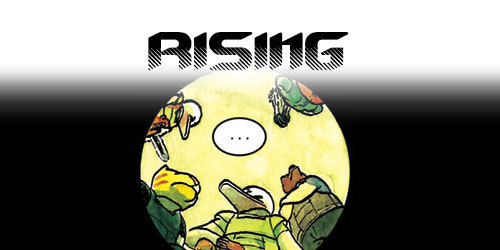
As mentioned before, I was very much looking forward to the game's release and getting around to playing it. I had gone cold turkey on playing the previous installment, wishing to discover the gameplay anew and making my patience feel like a reward when I got around to playing it.
I wrote “named characters” because giving them a name makes them more real, part of the world, with motivations unique to them. Not just an avatar the player can slip into and mirror back what the little amount of pixels with a human shape might be beginning to feel when committing violent acts. That also means there are more stories that come bundled together, they're more present than ever and harder to ignore for a player who wants to skip to the next action set. The arcade game format of the first game alongside its simplicity is lost, but more story is what I wanted in the sequel, so I can't complain.
Playstyles and characters were a joy to discover and experiment with these characters comprise of:
The Fans, covered in colourful war paint with their individual animal masks and expertise, all set out to go on a vigilante murder spree, chainsaws and guns in hand.
Manny Pardo, the detective whose motives remain unclear, with a more gun oriented gameplay.
Evan Wright, the writer with the one with the most unusual playstyle of the lot, seeing as he tries to do non-lethal takedowns of people he chooses himself to be around needlessly putting him and his family in danger in pursuit of the truth behind the first game's phone calls. This unique gameplay can be made into the default one by going too far on ground executions, making him go into a blind rage and seeing red.
The Soldier, limited to a single gun of your choosing whose ammunition must be replenished through carefully placed boxes throughout the level and an army knife for close range combat.
The Mafia, comprising of the Son of the former leader of the Russian mafia and his Henchman. The former wanting to reinstate the dominance of the Russian mafia after the Colombian cartel took over and the latter wishing to break free of this cycle. The Son has the same array of skills as the Fans, exception made of the chainsaw and gun combo, making him a reckless one man army, and a cool parallel between the Russian mafia and the vigilantes in animal masks.
And the last playstyle, what feels like the default way to play the game, is the one found in the first game. Simultaneously not making you feel contrived to play a certain way, but not making you feel overpowered either. It's shared between a handful of characters in the game: the Henchman , the Rat, the Pig Butcher, and the Snake. (although the latter is able to play in a fists only way with one of his masks)
Guns only, dodge rolling, fists only, a chainsaw and gun at the same time, double MP5s, and even non-lethal gameplay help to define everybody really well, beyond words and appearances.
Getting to explore levels that are massive and open was the biggest game changer, being tunnel visioned and sticking to melee weapons became a death sentence for some levels with frustration quickly rising. I remember reading the advice that guns made too much noise in Hotline Miami, the result was sticking to a melee weapon and executing fallen enemies; which rewarded you with more immediate points than firing with the different array of guns, but rising combo counters and being wary of cover definitely became the name of the game in the sequel, for better or worse.
Gone were the collection of small colourful appartement buildings, what felt like cardboard boxes with “Miami, Florida” scrawled in felt tip pen on them; instead we have unique looking buildings, that feel inhabited, grubby at times, and more unwelcome than ever for a gunfight. More windows, and getting shot from offscreen, and enemies for which you have to use a specific kind of weapons on to progress through the level, all at the same time.
Multitasking is asked from the player, being aware of the enemies in your surroundings along with the abilities and limitations of the character you are playing. Not to mention hard mode which you unlock after finishing the game for the first time, with more reaction time and ammunition conservation playing a bigger role by then. Hotline Miami's puzzle side could expand to its full potential and the developers have truly made a better game. More thought, more gameplay, more amazing music tracks from a variety of indie musicians, and more story was put into Wrong Number, it was everything I was hoping for and I wasn't disappointed by the game at all... At first.
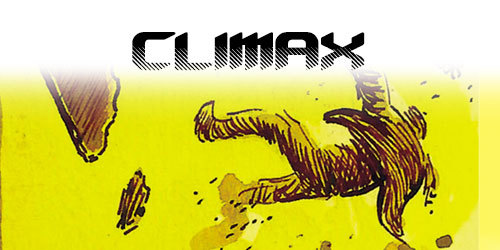
This isn't going to relate to a few people, but I try to finish games as fast as I can. Not speedrun them mind you, I like playing games too much for that, but finish it from beginning to end in a timely fashion. In the past, my interest dropped very fast for games that require time, knowledge of all its controls, or reflexes to beat and will get frustrated if I can't get back into the groove of it after a few months of not playing it. I tend to start over because I've either lost track of the story or of the rhythm of later chapters. On top of that, I didn't want to be spoiled accidentally or put it off too long. I remember finishing Hotline Miami's main story in one sitting only coming back the next day to finish the Biker levels, why not do it with Wrong Number?
To this day, I regret playing Hotline Miami 2 in one sitting. After 3 hours without a break, I had a slight headache, by the time I had finished the game 6 hours later, I had a migraine. By playing it the way I had, I'd successfully completed the game, but gotten a feeling of disgust by the end of it. I've had hangovers that felt better.
On a side note, that day I got a call from a classmate who wanted my opinion on the direction of his end of the year comic presentation was going. He came round when I was in the middle of Deathwish, on the level with Corey, what felt like the ultimate test of skill at the time. And I definitely gave vibes that I wanted to get back into the action, despite taking the time to answer questions and discuss his comic project (if you're reading this Jean, I'm really sorry, come round for tea sometime!). Time feels very fuzzy for this, as I seem to remember spending too much time on that stage, listening to the track Roller Mobster by Carpenter Brut over and over and slowly growing to resent it. I've gotten better since then and like the song just fine now, but I still have trouble with that level.
The assault on the Russian Mafia's headquarter by the Fans is a 4 floor action packed romp, where they all have their own floor for themselves and aim to meet each other on the roof of the building. Things don't go as planned for reasons that weren't explained immediately. Only after Deathwish do we realise that the Fans we had played as had fallen in battle one by one and died during their siege as we were playing the next floor. Now, characters whose gameplay were unique at that point got killed offscreen, with one onscreen by the police, rightfully so as they had only themselves to blame for their demise. I felt drained by the time I had come to what I thought was the end of the game. It turned out that it was the midpoint of the whole story. A pit in my stomach was slowly forming: there was going to be more after all this?
More of everything is both a blessing and a curse, more music leaves room for tracks I'll have a hard time liking, more violence means I'll slowly be apathetic to the character's struggles, and more characters is forgetting the levels that features only one of them, wondering why they were even there in the first place and if they could have been cut in favour of a smaller cast with their unique gameplay. Excitement had passed and doubt had settled in: character driven stories are what I love most of all and the cast was slowly thinning down. Those who had died weren't seen again in the story, was it going to keep my interest? I certainly expected it to.

I finally took a break to have dinner and a stretch before coming back to continue Casualties, the final level featuring the Soldier. The stages between that one and Deathwish are wonderful, great even, but they felt as thought they don't fit into the main story, I remember later trying to rearrange all the levels, keeping in mind which levels concluded each chapters and found that everything fitted really well together as it did. I was still getting over the previous levels so maybe I wasn't enjoying them as much as I should at the time.
I'm going to be honest when I say I forget the Soldier is in the game every time. An actual wartime setting, in an alien looking Hawaii none the less, with a gameplay that's really enjoyable and prepared me for hard mode's ammunition conservation gameplay very well should be memorable. It may be due to the fact that his inclusion was to give a background to the protagonist of Hotline Miami and give the origins of the secret organisation behind the phone calls of the first game, with parallels to mission euphemisms over walkie talkies, commando style hits, and sense of loss to a cycle of violence that doesn't care for its victims or its players. The character's final moments didn't bite as hard this time, even though that one felt the most undeserved out of the whole cast.
The next four levels featuring Richter the Rat are some of the best I've experienced, by that point we were focusing on a new character we'd met in the previous game and of which I didn't think much of at the time. Seeing him was an unexpected surprise for me, a really good one because of all its touching cutscenes and tight levels. Even in his last chapter, with the track Le Perv by Carpenter Brut, reminiscent of Deathwish's nauseating track, was honestly a joy to play through, despite the difficulty. It also was a nice conclusion for the Writer's story, who instigates the Rat's recollection of the events, with a final choice between continuing the book about the vigilante group and its mysterious phone calls or reconnecting with his estranged family while there is still time and discontinuing the cycle of violence, neither choice affects the outcome of the finale, but there is definitely an obvious conclusion in there, for me at least.
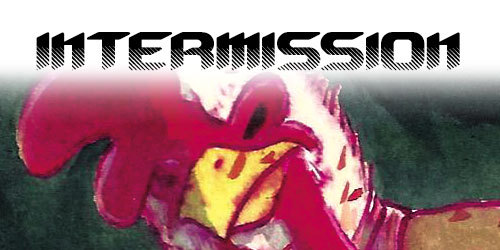
Nowadays, I know all the elements and numerous characters were included in Hotline Miami 2: Wrong Number so that everything would be done in one game. Everything Dennaton wanted to experiment with, characters that tied different storylines together and both made sense of the first game and concluded its story for good. Hotline Miami didn't have room for flamethrowers or more storylines with other operators, it was an overarching story for the player, to be in the shoes of a hitman in an animal mask, with room to interpret the story for ourselves. The sequel doesn't stand on its own from a narrative sense: I'd be utterly confused by some of the stories of Hotline Miami 2 if I hadn't played the first game, since everything stems from the events of Hotline Miami. The result is that it all feels very heavy to take in all at once.
I really didn't care for Jacket's background, or why he did anything in the first game. He doesn't have a name, or a voice, or a personality, he's really boring in a story sense, but he's the perfect game protagonist. If he can be anything you want him to be, there's no room to dislike him, aside for his violent actions which he doesn't justify to himself in any way, he just does as he is told, like the soldier he once was. We feel what he feels during the violent missions, the sense that we get better and better at the game, the character doesn't improve, as there's no character to improve, we as the player are improving level by level.
So when the sequel explained that he was a veteran that fought in a war we never get the context for or care about, my first thought was that “he was just Rambo”. I hadn't watched Rambo at the time and only ever saw that character in old Atari games where you kill nameless soldiers. He'd always seemed like the generic action movie soldier that looks cool shooting away at his enemies. But since then, I've sat down to watch the first Rambo and saw the tale about young man coming back from war without education, aside from how to kill, back to a country that doesn't need him, and even despises him. It's an incredibly sad thing to watch a character broken by committing and being the victim of violence only to be rejected by the society they served.
The personal interpretations about Jacket is one of the best parts of Hotline Miami, as much as its gameplay, graphics, and music. Wrong Number builds upon that foundation by taking multiple interpretations of what Jacket could be and extends it to the cast of the sequel: he could be a jingoist with a burning hate for Russians (Jake the Snake) just as much as he could be scared for his life and willing to protect a person he loves (Richter the Rat). He's the now unwanted soldier of a war that is long lost (the Fans) just as much as he is the patriot in service of a minority struggling for his rightful place in a hostile environment (the Son). He's also a serial killer in an animal mask (the Pig Butcher) just as much as he is a killer with his own motives that don't have to be revealed to the player (Manny Pardo the Detective). And Biker’s search for answers is mirrored by the Writer, it was only fate that they would eventually meet up.
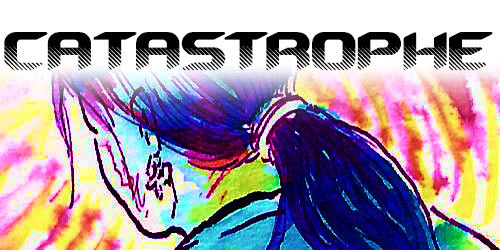
After the levels with Richter, we have the final 5 levels featuring another one of my favourite characters: the Son. He's the de facto leader of the Russian mafia, a scarred one man army with what feels like the strongest desire of the cast of characters: taking back Miami from the Colombian cartel, the new organised crime network in charge. His Father, the final antagonist of Hotline Miami, felt like a strong businessman with the plan of gaining power over the city through assimilation: striking a deal between the Colombians and their cocaine distribution, owning methadone clinics for the new addicts to heroin and cocaine, and gaining the favour of local politicians. The Son is nothing like that. He has a more aggressive show of power and control, separating himself from organically made drugs in favor for more potent artificial ones produced locally and actively killing his competition through violence, being in a revolution similar to the masked vigilantes in an attempt to undo the damage caused by Jacket in the first game.
As an aside, Manny Pardo has his final level in the middle, throughout the game we are teased with his personal investigation, the one of a serial killer called the Miami Mutilator, separate from the main plot of the game. It all comes to a head in his last level when it's revealed that he is the one behind the murders of the Mutilator, in an attempt to overshadow the media's attention of the masked vigilantes. The interpretation I developed over time was that his story arc was a meta commentary on sequels having their own story and an inevitable lack of interest from fans of the first game, curious instead about a continuation of the first game's narrative.
I remember originally thinking from the game's trailer that Manny Pardo was Jacket and getting really curious about how the story was going to go about, until I realised that he was in fact another character with his own motives and losing interest almost immediately in favour of the Fans revealed alongside him in the video. When it emerged that he was a detective, it seemed immediately more interesting than Jacket ever was, that it would be a character in search of answers, similar to the likes of Biker from the first game. The expectation was subverted, as it turns out that he has more current things to worry about and masked vigilantes are a thing of the past, crime doesn't stop happening and random violence is the norm in the world of Hotline Miami.
After the Detective's final level, we have what has to be one of the hardest challenges of the game: the final showdown between the Son and the Colombian cartel's Boss in his sprawling villa. Even after having been playing the game for almost 8 continuous hours, it really felt like what the game was leading us up to, from random street thugs to the drug army in Miami. And yet, even when the level was all said and done, there was yet another level after that. We are back to what felt like the finale a few hours ago: Deathwish, only this time it's the Son's side of the story, overdosing on his own artificial drugs and going on a overcoloured haze of hallucinatory violence.
Apocalypse is the name of that level, and it's a beautiful boss rush, where all the Fans are turned into monstrous animal shaped fever dreams that the Son has set himself out to destroy in his terrible drug trip, alongside his own men, turned into unrecognisable demons. It all leads to the rooftop, where a rainbow bridge invites us off into the void as the game's credits show up on the screen. The credits fade in favour of the rest of the cast, alive and unperturbed by the finale we as the player went through, only to realise that events offscreen trigger the end of the world, nuclear bombs vaporise them all and...
I didn't get it.
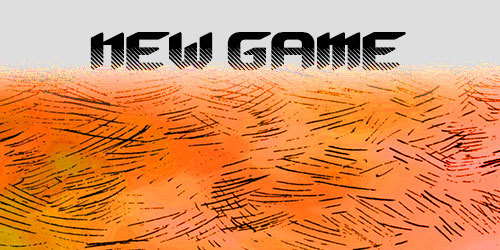
It took a good night's sleep and a bit of thinking to understand what Hotline Miami 2:Wrong Number was about: deconstructing Hotline Miami. The first game's conclusion had a hopeful tone to it, with mocking comments by the developer's stand-ins if we came back looking for more answers by playing Biker's additional levels, with actual answers that feel forced if you actually manage to find all the clues within the game. The sequel ends the world with nuclear clouds and if we start a new game, we get a new introduction at the start of the game essentially asking: “why are you back?”. There were no more answers the game could provide.
Violence is at the core of both of the games and it never seemed to stop. Hotline Miami left us wanting more, Hotline Miami 2 left us with the most violent thing known to humanity. I remember thinking that it was a deus ex machina ending, an answer to problems that seemed unsolvable. But inside the game there’s all this rising tension, focusing so much on the characters distracted me from the fact that it was culminating towards the end of the world. All the characters were trying to solve all their problems through violence, but the world wasn't going to get better through those methods. It was the only conclusion a game like that could have and I love it more than ever.
I cannot thank Dennaton enough for the incredible time I had and keep coming back to with Hotline Miami 2: Wrong Number. It has made me explore media I never would have discovered otherwise and draw things I never imagined I would come to draw. Happy 3rd anniversary to an incredible game, and I look forward to the future.
89 notes
·
View notes
Text
For the Love of an Unworthy White Man
In October 2018, I finally saw Miss Saigon, after deliberately boycotting it for almost thirty years. When it first opened in 1989, between the tired rehashing of Puccini’s Madama Butterfly and the yellowface casting controversy over Jonathan Pryce as the Engineer, there was nothing about this show that appealed to me, especially when I had already seen M. Butterfly, David Henry Hwang’s groundbreaking, Tony-winning play that turned the submissive Asian woman trope on its head. M. Butterfly literally changed my life at a time when I was just learning to navigate being an Asian woman in white America, and everything I read about Miss Saigon seemed to be in direct opposition to the lessons I learned from M. Butterfly: resist stereotypes, claim your heritage proudly, never let a man control the direction of your life. So, despite my love of Broadway musical extravaganzas, and my hunger to see Asian performers onstage, I never went to see this blockbuster hit. Whenever a production of Miss Saigon rolled into the Bay Area, people who knew how I loved theatre would ask if I was going to see it, and I’d have to explain once again why I found the basic premise of the story offensive and refused to support it. I got the distinct impression that a lot of people were internally rolling their eyes at my futile protest, but I didn’t care. It was a matter of principle. Until now. So...what changed my mind? Well, first and foremost, Soft Power. That was the Asian American musical extravaganza I’d been waiting for. David Henry Hwang’s absurdist semi-experimental comedy--about Hillary Clinton’s influence on a Chinese entertainment mogul that cast Asian American actors in whiteface and stands American cultural hegemony on its head--had me laughing and crying like nothing else I’ve ever experienced in my life. It was incredibly uplifting--especially in Trump’s America--to see so many Asian faces on the stage, dancing and singing, poking fun at clueless, self-important, white Americans, subverting stereotypes and challenging expectations. That was in July. Then, I saw Two Mile Hollow by Leah Nanako Winkler at the Ferocious Lotus. And Straight White Men by Young Jean Lee, the first play by an Asian American woman ever produced on Broadway. And then To All the Boys I’ve Loved Before on Netflix. And finally, Crazy Rich Asians on the big screen in August. In one glorious and unprecedented summer, I saw more Asian American representation on stage and screen than I had in my whole previous American life. Because I had always watched Chinese films and television shows, I had thought I was OK on the representation front, but really, it’s a totally different experience. Seeing Asian American representation, finally, fed my soul in a way that I hadn’t realized I needed, like I was starving and didn’t even know it until I feasted on all these wonderful stories about people like me. So when I was offered free tickets to Miss Saigon, I was surprised to not feel the visceral anger that had always bubbled up when this show came to town. I decided to go see it, in order to understand it better, and in the hopes that this new revival would have addressed some of the more problematic parts of the story. Also, the tickets had already been paid for, so why not? I wasn’t supporting the production, they already had the money. To be fair, I didn’t hate it, I just didn’t like it. I did try to look for positives: the set was well designed and efficient; the big helicopter scene was pretty epic, as promised; the whole flashback to the fall of Saigon was powerfully choreographed, and once again, I loved seeing so many Asian faces on stage. The kid who played Tam was adorably cute, too. He melted my grumpy heart a lot, for sure. But that story! It was agonizing to watch it unfold, yet again, knowing that the Asian woman we’d been coerced into sympathizing with was going to negate herself, disappear conveniently, so everyone else would get to have everything they wanted. It’s the lesson this world has been forcing down my throat for my entire life, and I’m tired of puking it back up in their faces. And that doesn’t even begin to address all the other tired old tropes: desperate Asian prostitutes clinging to American johns as their only chance at a better life; smarmy, abusive pimps-of-color who are still, somehow, the most practical and clear-eyed counselor for our heroine; conflicted, guilt-ridden white saviors confronted with the limits of their power and privilege. I’d seen it all before, so many times, and it was exhausting to sit through yet another iteration of this sad, incomplete, stereotypical story. Even worse, sitting there in the audience next to my white American husband, I felt embarrassed. I imagined the other playgoers--mostly older, mostly white--seeing us and thinking, “Oh how nice for them. What a lucky girl that one is, unlike poor Kim, to have won her white knight in the end.” If you think I’m being melodramatic, I assure you, I’m not. I’ve encountered that condescending attitude from way too many people--including members of my own family--for three decades now. Because my husband is a conventionally handsome white man from a wealthy family, a ridiculous lot of people assume that he ‘rescued’ me, or ‘lifted me up,’ or was somehow my ticket to a ‘better’ life by conferring upon me proximal access to his privilege and power. They see his love and commitment as an asset that I’m fortunate to have added to my portfolio, as if our relationship was an investment and I’m getting a higher return than he is. The implication, of course, is that he doesn’t gain as much from being with me as I do from being with him, because I don’t bring anything as systemically powerful as white male privilege and hereditary wealth to the table. Instead, his love for me is viewed as beneficent, charitable, a gift I should be eternally grateful for, and so many people are puzzled that I am not. In short, they think he is better than me, because he is white, he is a man, and he has money. What they don’t see, or acknowledge, or recognize as valuable, is the emotional strength and intellectual clarity that I possess, and the very traits that my husband fell in love with, back when he was a troubled young man. What they cannot grasp--because these stories are rarely told, which is why I’m telling it, now--is that in reality, I rescued him from an empty, directionless life of dead-end work and weekend debauchery, and earning my love is what gives his life meaning. When we met (in 1989, the same year Miss Saigon premiered in the West End, the same year I saw M. Butterfly for the first time), my husband was a twenty-three year old college dropout, working construction, drinking to excess, without a plan for the future or hope for a meaningful life. Sure, he came from a comfortably affluent family, but you’d never have known it from the way that he lived. He had rejected most of the trappings of privilege that he was born into, as well as its conventional, materialistic values, but had not yet formulated a coherent set of values for himself or discovered a purpose in life. He also espoused some really off-putting political views, half-jokingly idolized horrible, evil men like Richard Nixon and Charles Manson, and was prone to loud, obnoxious rants about things he clearly didn’t understand. I found nothing remotely attractive about him in our first few encounters. For his part, he didn’t even notice me for the first eight months we were in each others’ social orbit. It wasn’t until we were thrown together in a booth at La Rondalla that he even remembered me for the first time. But for whatever reason--and in thirty years, l still haven’t gotten a clear answer about his reasons, introspection is not his strong suit--that night he decided that I was what he needed in his life, and he set about wooing me despite my initial rejection of his advances. I did not take his courtship seriously at first. The trajectories of our lives were not in sync, and I had no intention of deviating from my goals. So far as I could tell, he had no goals, and I was reluctant to engage with someone who seemed so lost and unclear on his purpose in life. He was, quite simply, not worthy of my time or attention. Luckily for him, he made his move at a time when I was bored, waiting for my life to start--I was taking a gap year, working as a bike messenger in San Francisco, and had just been accepted to my dream college, with four months to kill before heading off to Berkeley--so I agreed to go out with him, figuring it would be a summer fling that would end when I went to Cal. Much to my surprise and consternation, by the time school started, we were in love. This was not what I’d expected, and I tried, repeatedly, to break up with him during my freshman year, to no avail. Every time I worked up the courage to break his heart, I felt terrible and took him back a few days later. I hadn’t counted on that. I’d never been in love before. One thing I’ve learned over the years...assuming there’s nothing fundamentally repulsive about them, it’s really hard to not love someone back who loves you wholeheartedly, without reservation. Chemistry is a mysterious thing, not always logical or rational, and what happens between two people can be hard to understand from outside the relationship. Even though I loved him, it was not easy to live with him. The trollish, aggro behavior that initially turned me off took a long time to for him to unlearn. He was often blind to his own privilege, and harbored deep insecurities that he refused to address. It took years to convince him to seek help, to confront his demons, to become a better man, and it was exhausting to be the constant voice of reason in the household, holding everything together because he hadn’t figured his shit out, yet. Over many years, he did slowly work through most of his issues, ultimately winning me over with his unwavering commitment and devotion, and most importantly, his willingness to change and grow in order to keep me in his life. After over three decades together, through many turbulent times, we’ve finally arrived at a relatively calm harbor in our relationship. It took a long time--a lot longer than I could have ever imagined when I first agreed to go out with him--but he has become worthy of my love. But this isn’t what most people see when they see us. What they see is a tall, handsome, successful, wealthy white man and the lucky immigrant Chinese girl who had the good fortune to snag him, lifting herself and their children into affluence in one generation. What they refuse to consider is the simple fact that falling in love with me, and working hard to become a man worthy of my love is the best thing my husband has done with his life. What they expect to see is 150 years of western imperialism in China played out in human form. What they don’t see is who we really are. Anyone who actually knows us, who understands the dynamics of our relationship, knows better. While my husband’s status and wealth is infinitely helpful in maintaining our materially comfortable lifestyle, and there is no question that he is a loving husband and father who works hard to provide for us, the entire construct of our lives is built upon my deep reserves of emotional strength, confidence, and resilience. I hold everything together, sometimes through sheer strength of will, fighting his self-destructive neuroses every step of the way. I suspect this is true in a lot of long-lasting relationships, but women are conditioned not to let people know this, lest it makes their man look weak. It’s time for strong women to break the silence, to stop hiding their strength in order to make men look stronger. Not too long ago, someone whom I’ve never met, who doesn’t know us and only knew that his wife was Asian, asked him, “Does your wife even speak English?” When he reported this exchange to me, laughing at the absurdity of other people’s assumptions about us, he was very surprised that I was furious that he thought it was funny. To him, and many other people, the fact that I am highly English proficient should take the sting out of these insulting assumptions about my language abilities. What they don’t understand is that the real assumption, the true insult, is that I am fundamentally less than he is, and there’s nothing fucking funny about that.
0 notes
Text
Episode 10: Jessica’s Battle
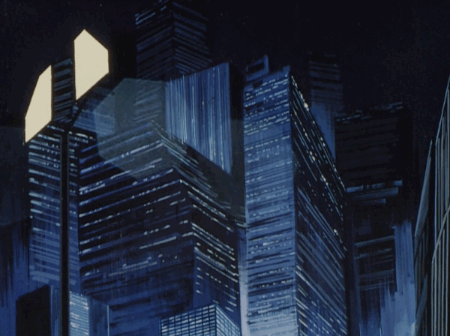
Summer 796/487. Yang and Julian travel to Thernusen, where Yang has been ordered to attend a ceremony at the military academy. Upon arrival Yang is unwittingly sucked into a political battle between pro-war and anti-war factions, and we learn that politics have gotten no more civil in the next 1600 years: Yang is attacked by peace party goons; peace party goons are attacked by the PKC; and finally Yang is saved from Jessica’s rather aggressive advances when the headquarters of the peace party is bombed, killing their candidate. This strategy backfires badly, as Jessica runs in his place and receives 80% (!!) of the vote. Meanwhile, Julian is repeatedly denied the chance to have any fun.
Yang, Asexuality, and Representation
One frankly astonishing thing about Legend of Galactic Heroes is the breadth and variety of queer characters, each with their own personal relationship to issues of love and sex and romance, each with their own personal struggles against societies that want to cram everyone into neat normative boxes, each with their own methods of navigating those expectations. Hell, it’s only episode 10, and already we’ve gotten to know one gay couple well and seen another gay couple in the background; we’ve gotten glimpses of Magdalena and Hilda, whose respective ways of navigating imperial society as queer women we’ll discuss at length as we see more of them; we’ve met Dusty, who flies slightly under the radar by embracing a “confirmed bachelor” identity; and pretty soon we’ll meet a gay character who attempts to pass by loudly proclaiming his (dubious) heterosexual conquests at every opportunity. In the future we’ll get to know a handful of bi characters, some quite promiscuous, others very shy about sex and romance. We’ll see multiple different characters grapple with their parents’ reactions to their queer identities. This is not representation as in box-checking and calling it a day. This is representation as in an actual reflection of the myriad ways that real people relate to these issues individually.
And there’s Yang, who is asexual. I’ve been dancing around this for several episodes, ever since one of the first details the show chose to tell us about him in “My Conquest” was his apathy toward the piles of love letters he receives:
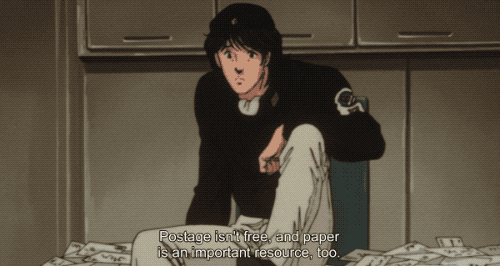
Hints of this have been there all along (remember his overly flustered reaction to feeling like Cazellnu was attempting to matchmake for him?), but finally in this episode, through his interactions with Jessica and backstory about his time at the academy, we get enough detail and body language to start to put the puzzle together. Alliance culture of the late 700’s being remarkably similar to much of Earth culture of the late 1900’s, Yang lacks a good framework for understanding this aspect of himself, and throughout the show we’ll see him struggle with an inability to explain the anxiety he clearly feels when confronted with romantic situations. Although he’s not aromantic, the potential sexual expectations that go along with romance lead him to shy away from it, as he did with Jessica, and is already starting to do with Frederica.
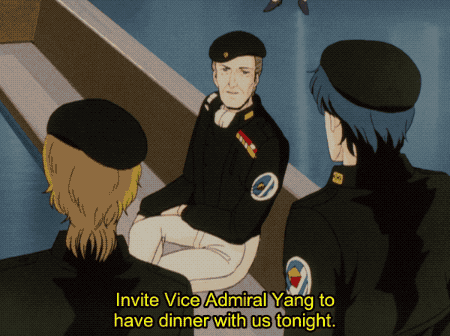
What Yang says here is "tondemonai," which I'd translate as something like "not at all!"
Wading through online lists of supposedly ace characters in media, one finds a pretty frustrating mix of characters who are either actually gay (with asexuality used as a cloak by the creators and/or audience to sweep that gayness under the rug), or rendered “asexual” through some accident or medical condition, or are some kind of biologically asexual being, with just a handful of actual examples scattered throughout. But Yang is not a robot or a legendary Pokémon, or a background character who just never gets paired off romantically. He’s a protagonist, a warm and empathetic and brilliant person with many complicated relationships in his life spanning friendship and romance. The nuance and realism with which his love life is depicted throughout the show is both impressive and Really Fucking Important.
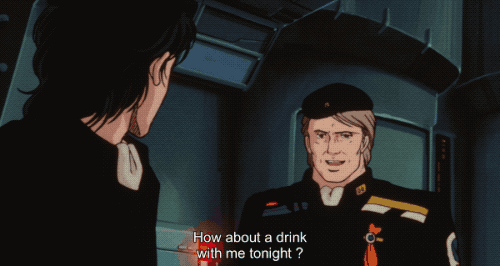
Aww Yang.
Yang and Jessica
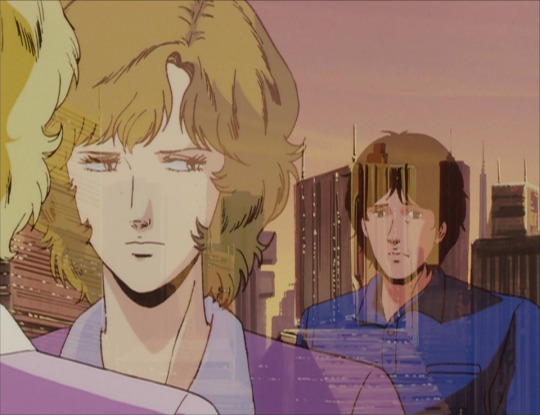
I love the motif of reflections in this show. This shot captures the distance between them in a way no words I could type here can.
There are so many facets to the sadness and tension that pervade every scene between Yang and Jessica: their different approaches to working to end the war; the pain of Lapp’s recent death and Yang’s guilt surrounding it; and, as we learn in this episode, lingering regret on Jessica’s part that Yang never pursued a romantic relationship with her. Because of the complexity of their dynamic and the fact that Yang himself is confused about how to act around her, untangling their interactions is a difficult task. There’s a lot that’s deliberately left ambiguous; and while I love that LoGH doesn’t feel the need to make relationships simpler than they are in real life, it doesn’t exactly make our job as viewers easy.
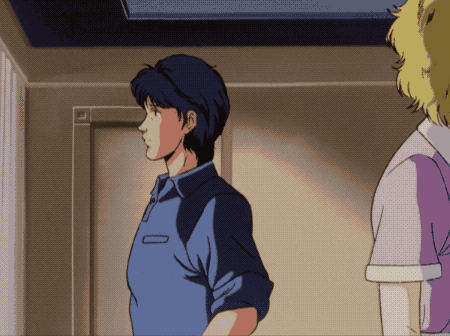
What was Yang about to say? An explanation of why he feels it’s best for him to play nice with his superiors even though they’re using him for propaganda? An invitation to socialize that he decides could be taken the wrong way, or would be turned down because of the political gulf between them? Just tell us dammit, to hell with realistic storytelling!
Our goal, then, like that parable about the blind men and the elephant, is to find the reality that best explains the sum total of the details that we see, even when each detail on its own may feel ambiguous. And the main thread that runs through all of Yang’s behavior, both in the flashback to his first year at the academy and in the present, is his complete lack of initiative when it comes to anything romantic.
Case in point number one: Although we’re told twice—through Julian, importantly—that part of Yang’s agenda in going to Thernusen is to see Jessica, he never once actually makes an active effort to do so, instead filling his free time by flopping on the hotel bed griping about politics and taking Julian out to fancy restaurants.
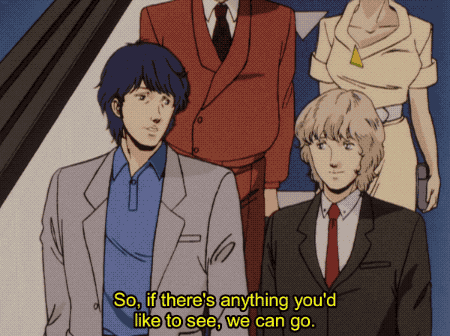
Is Julian a reliable narrator here? Unclear—if you’ve ever had the sort of hero-worship proto-crush that Julian has at this point, you might recognize an over-eager interest in that person’s love life as one of the symptoms. Yang’s “oy mind your own business” reactions tell us that the situation is complicated, but not much more than that.
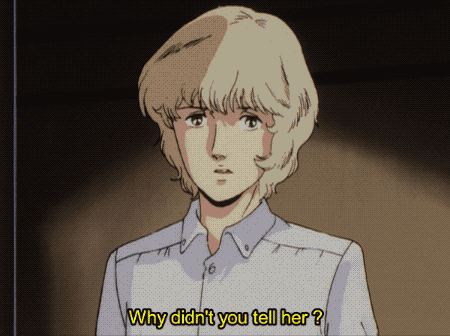
When we last saw Yang and Jessica together, they were saying an extremely awkward and fraught goodbye at the airport; in particular, Jessica seemed to be waiting for Yang to say something further, before finally giving up and walking away. At the time I suggested that Yang’s sadness in that scene could stem partly from not feeling comfortable fulfilling the role that her wistful gazes seem to ask of him, and his reluctance to reach out to her while he’s in Thernusen fits with that. Julian, being astute and keenly interested in the subject, has also picked up on vibes beyond “old college friend” between Yang and Jessica, and his natural assumption is that this ought to mean Yang will seek her out. But on the contrary, Yang’s reaction is to withdraw.
Turns out he didn’t need to seek her out: Like it or not they’re thrown together twice by the political melodrama that’s going down in this city. After the second incident, in which Yang rescues one of Jessica’s friends from PKC thugs, he finds himself walking with her past the military academy campus, and at her suggestion they sneak in.
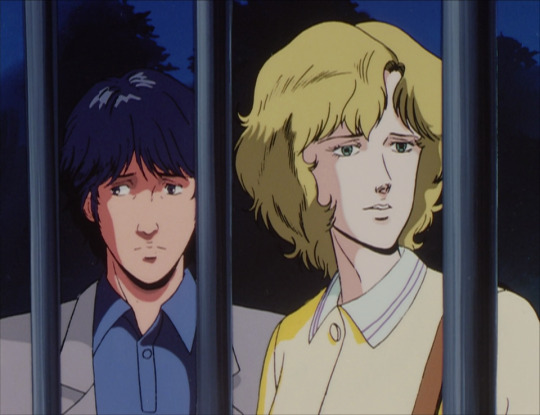
Pictured: Yang Wenli in his natural habitat, on a romantic walk at night alone with a girl.
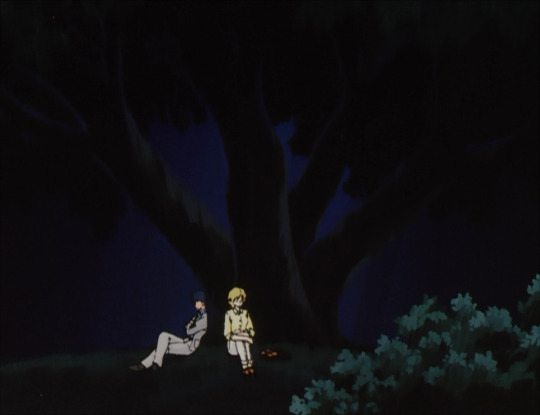
This incredibly closed off body language contrasts not only with how Yang acts in situations where he feels comfortable, but also notably with the body language between Reinhard and Kircheis in...well okay in every scene that includes both of them, but I’m thinking specifically of the episode 8 flashback, which also takes place in the romantic setting of sitting together on the grass at night.
Being at the academy leads to a nostalgic mood, which brings us to case in point number two of Yang’s passivity. Through an extended flashback we learn that he first saw Jessica when his friend Lapp literally dragged him away from scrolling through Instagr— I mean studying history, in order to ogle a hot girl he found through a window.
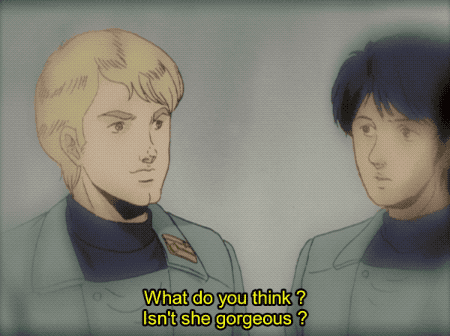
Quick aside on Lapp and how much he sucks: ...a lot. This is fucked up. If Lapp likes her, why drag Yang into it? In his mind he’s probably being generous, but it reeks of positioning Jessica as an object that must be competed for and won in order to have real value. Wtf Lapp. I talked above about the beauty of how this show captures the true panoply of human experience, but did straight white douchebag guys really need the extra representation??
Lapp procured two tickets to a party that Jessica will be at, and when he asks Yang if he wants one Yang responds with an almost offended “of course”—why wouldn’t he? At the party Lapp and Yang are both standing around being wallflowers until Lapp decides it’s time for one of them to make a move on their target, and flips a coin for the privilege. Yang wins the flip, and so finds himself asking Jessica to dance, swept along into that position entirely by Lapp’s own interest in her.
I’m emphasizing Yang’s lack of initiative here because it’s important to the overall picture; I’m not suggesting that 18-year-old Yang isn’t sincerely hoping that things go well with Jessica. My read on college!Yang is that if left to his own devices he would sit around studying history all day, but if anything he’s grateful to have a friend who’s better at this girl stuff than he is who can push him a bit.
When they start dancing, however, it’s immediately clear that Yang is way, way out of his comfort zone.
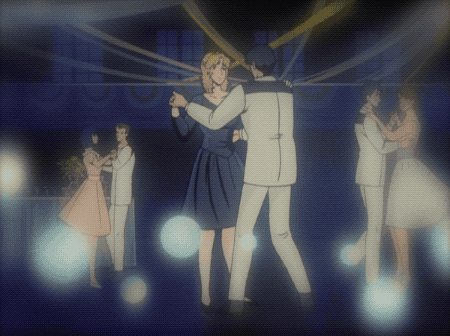
Yes, Yang “never learning to dance” can be taken as a metaphor for his asexuality. This symbolism is yet another "iceberg": the part above the surface is the actual events of the story, while the hidden depths are the metaphorical connections that we can draw from what's depicted to help us understand things the show can’t talk about more directly.
He’s failing so badly to perform the proper role of smoothly sweeping the girl off her feet that Lapp decides it’s necessary to save Yang from further embarrassment by cutting in for him; Yang seems (rightly!) a bit miffed at this, but quickly resigns himself to being a wallflower again.
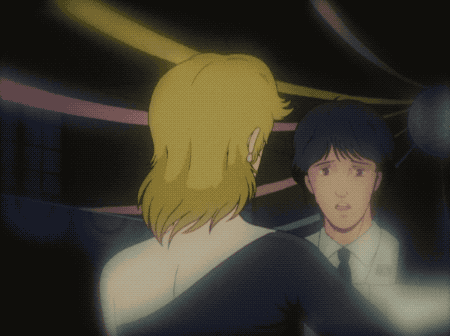
Lapp: Did I mention he sucks? This is another asshole move cloaked in ostensibly good intentions. Lapp would have ceded this “prize” to his friend if he won her fair and square, but as soon as he sees Yang deviate from the proper protocols of seduction, he decides Yang is no longer worthy and claims her for himself.
Jessica seems susceptible to Lapp’s charms, and some undetermined time later Yang spots them giggling together under a tree and realizes, a bit wistfully, that things between them seem to be clicking.

As always there could be a lot behind this wistfulness: wondering what might have been with Jessica if he’d had more of a chance; or more general envy that Lapp knows how to do this stuff and he doesn’t.
Which brings us back to the present, and Yang again finding himself swept along into a situation out of his comfort zone, sitting under a tree with a rather emotional Jessica. When Jessica confesses that she had been hoping Yang would ask her to dance again, Yang evasively cites Lapp’s infatuation with her, an excuse she doesn’t seem to totally accept.

What Jessica actually says here is “otoko-doushi no yuujou tte wake?” which I’d translate as “sooo it was a bro code kinda thing?” Good to know that fantastic concept survives for another 1600 years...
And when, overcome with various emotions, Jessica finally breaks through the closed-off body language and throws herself at Yang, we come to case in point number three of Yang failing to assert himself. Although he’s done all he can to passively signal that he’s uncomfortable with the hints of romance between them, he can’t seem to bring himself to actively reject her—maybe just because he hates the thought of hurting her, maybe because part of him wishes he were more interested and feels conflicted, maybe because part of him is interested but doesn’t feel comfortable pursuing it. Whatever the case, as soon as the more passive thing to do is to reciprocate her advances, he goes along with it.

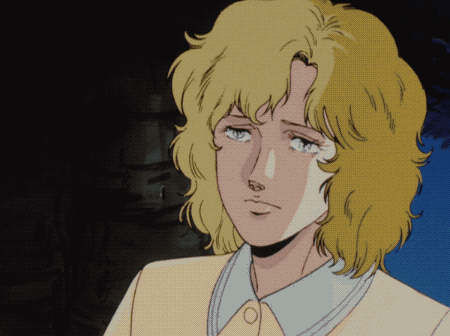
Fortunately for Yang, this incipient tryst is interrupted by the PKC bombing the headquarters of Jessica’s political party, killing their candidate. Despite their last real interaction being an aborted kiss, Yang slips immediately back into passive avoidance mode, making no further attempts to follow up with her before heading back to Heinessenpolis the next day. Jessica is caught up even further in politics, as she runs in place of the murdered candidate and wins; and Yang returns to his military life, glancing at her on the television as he heads off to a meeting with Frederica and wishing her luck. Despite Jessica’s lingering feelings and Yang’s wistfulness, the gulf between them has very clearly widened.
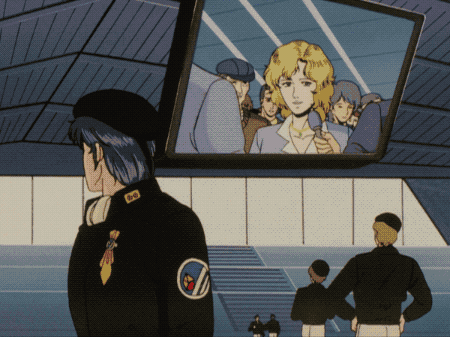
Julian
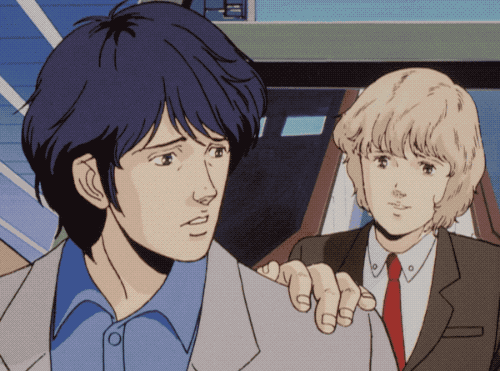
In the background of all of the drama of this episode we find Julian, teasing Yang about Jessica, listening to Yang’s rants about feeling used by the politicians, lying through his teeth to hotel security, and just generally being a completely adorable shadow-slash-caretaker to Yang.
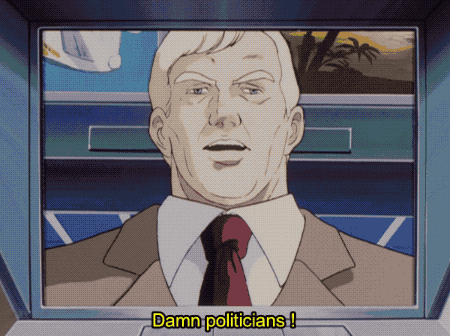
Here Julian takes on the role of managing Yang’s emotional state: turning off the TV when thinking about politics is making Yang cranky, then visibly collecting his own emotions enough to smile and offer tea.
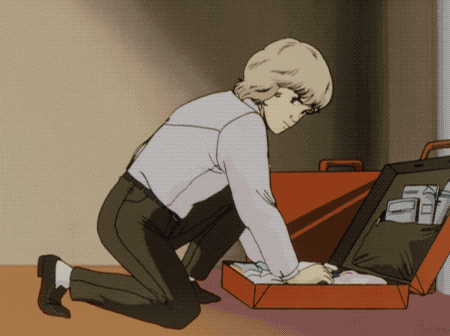
In possibly my favorite moment of the episode, Julian is one second away from getting to be the hero who saves Yang from the peace party thugs who are attacking him...only to have his thunder stolen by Jessica. Poor kid.
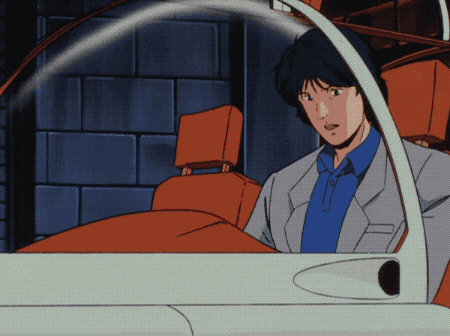
Yang...Yang...literally thirty seconds ago this abandoned street was full of violent PKC goons who bear a grudge against you and people you care about, and you just… Listen who the fuck put Yang in charge of another human being?
If you pay attention throughout the episode you’ll notice a dozen or so shots where Julian is perfectly mimicking Yang’s body language and expression. (I’ll restrain myself and only include four here.)
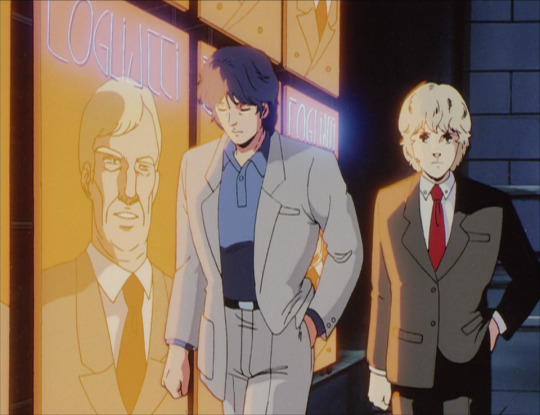
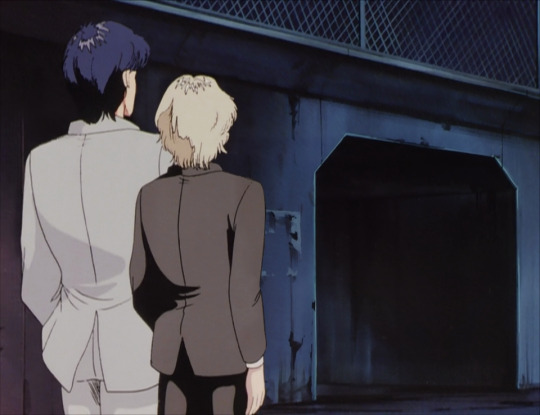
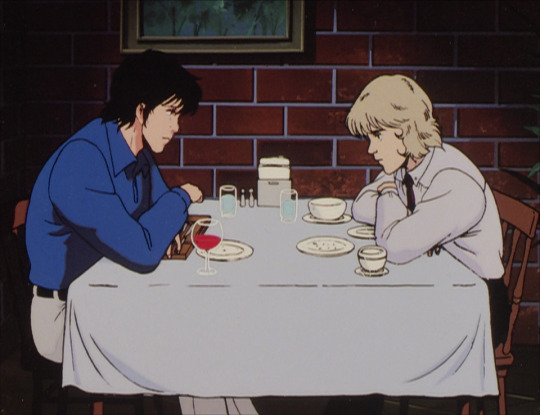
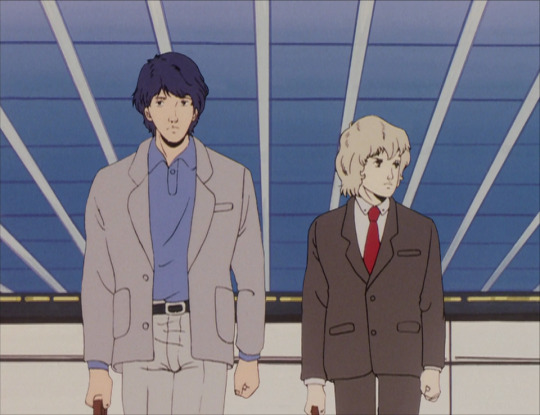
So much is conveyed by all of these tiny moments and details, without Julian ever being the actual focus of the episode. It’s beautiful storytelling.
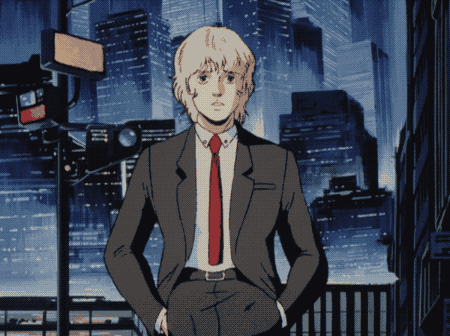
Aww Julian.
Stray Tidbits
Worldbuilding alert! We get a bit more detail about how these awesome self-driving zipcars work when Yang hails one. I love how real this feels; how many years away are we from actually having these?
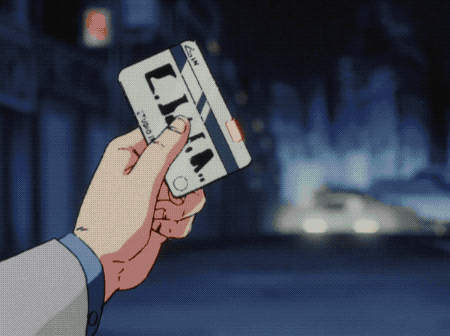
One thing that I find really interesting about the politics in LoGH is that we see characters disagreeing not just about the ultimate goals, but also about questions of the right methods to achieve them. Yang and Jessica both hate the war and feel an imperative to do what they can to minimize the damage done by it; the political tension between them comes from different philosophies about pursuing that end. The questions raised here are difficult and I like that the show never really tries to settle them.
Like episode 9, much of the plot of this episode is anime-only; in the novels Jessica’s victory in this election is mentioned only in passing.
Visibly Angry Yang is a rare specimen and I love him.
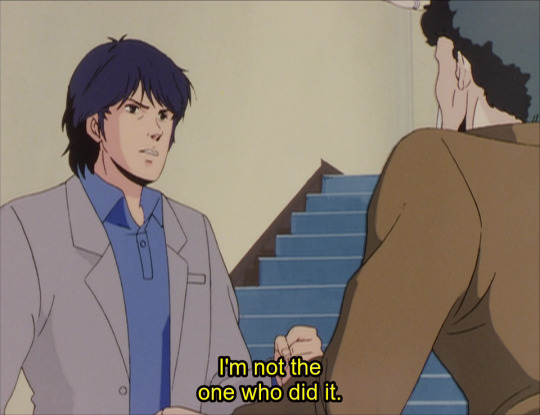
Clearly no one was ever supposed to have the technology to pause and move frame-by-frame through the sequence of Yang bouncing up into a sitting position on the hotel bed...this is probably the single most horrible LoGH screenshot I’ve ever taken.

#Legend of Galactic Heroes#Legend of the Galactic Heroes#author: Rebecca#Alliance#Yang#Jessica#Julian#asexuality#queerness#Legendary Pokémon#dammit Lapp#dammit Cazellnu#bro code
18 notes
·
View notes
Text
World: Cohen, Trump's ex-lawyer, investigated for bank fraud in excess of $20 million
Investigators are also examining whether Cohen violated campaign finance or other laws by helping to arrange financial deals to secure the silence of women who said they had affairs with Trump.
NEW YORK — Federal authorities investigating whether President Donald Trump’s former personal lawyer and fixer, Michael Cohen, committed bank and tax fraud have zeroed in on well over $20 million in loans obtained by taxi businesses that he and his family own, according to people familiar with the matter.
Investigators are also examining whether Cohen violated campaign finance or other laws by helping to arrange financial deals to secure the silence of women who said they had affairs with Trump. The inquiry has entered the final stage and prosecutors are considering filing charges by the end of August, two of the people said.
Any criminal charges against Cohen would deal a significant blow to the president. Cohen, 52, worked for the president’s company, the Trump Organization, for more than a decade. He was one of Trump’s most loyal and visible aides and called himself the president’s personal lawyer after Trump took office.
The bank loans under scrutiny, the total of which has not been previously reported, came from two financial institutions in the New York region that have catered to the taxi industry, Sterling National Bank and the Melrose Credit Union, according to business records and people with knowledge of the matter, including a banker who reviewed the transactions.
Federal investigators in New York are seeking to determine whether Cohen misrepresented the value of his assets to obtain the loans, which exceed $20 million.
They are also examining how he handled the income from his taxi medallions and whether he failed to report it to the IRS.
The two lenders were cited in the search warrants for raids that federal agents conducted this spring on Cohen’s office, home and a hotel room where he was staying, several of the people familiar with the matter have said.
Sterling received a grand jury subpoena seeking records related to the loans, one of the people said.
There is no indication that either bank suffered a loss as a result of the loans or that Cohen missed payments, which are ordinarily important aspects in a bank fraud case. While bank fraud without a loss is rarely charged on its own, it is sometimes charged in conjunction with other crimes, which may be what happens in Cohen’s case.
At this late stage of the inquiry, it is still possible that Cohen may plead guilty rather than face an indictment. He has hinted publicly and has stated explicitly in private that he is eager to tell prosecutors what he knows in exchange for leniency.
A cooperation agreement would likely include a provision that Cohen also provide information to the special counsel, Robert Mueller, who is investigating possible involvement by the Trump campaign in Russia’s meddling in the 2016 election.
It is unclear whether the prosecutors and Cohen’s lawyers have had detailed discussions about a potential cooperation deal, but it is unlikely that the government would bring charges without having done so.
But if a plea deal is not reached, either because Cohen and prosecutors cannot agree on the terms or because prosecutors determine he does not have valuable information or is not credible, the government would likely seek to bring charges well before the midterm elections.
If the matter is not finalized by the end of August, prosecutors probably will wait until after the election, one of the people familiar with the inquiry said in recent weeks. That schedule would conform with the Justice Department’s informal policy of avoiding bringing politically sensitive cases that could influence voters close to an election.
Cohen and his lawyers declined to comment on the investigation when contacted over the weekend and last week.
Federal officials in New York and Washington also would not comment.
The investigation into Cohen burst into public view April 9, when federal authorities searched his home, office and the hotel room, a move that sent a seismic wave through Washington and rattled Trump’s inner circle.
The investigation began under Mueller, who then referred the evidence to the U.S. Attorney’s Office in Manhattan. That office is now leading the inquiry along with the FBI and IRS, which have conducted an extensive review of Cohen’s personal business activities.
Days after the search, Cohen went to court in an attempt to limit the evidence prosecutors could review, claiming much of what was seized was covered by attorney-client privilege. Trump joined the effort.
During that litigation, prosecutors revealed that they had been investigating Cohen for fraud for “months” and had previously obtained a search warrant for his email accounts.
Trump railed against the investigation on Twitter and complained that “attorney-client privilege is dead.” His lawyer, Rudy Giuliani, referred to the agents who carried out the searches as “storm troopers.” (The normally combative Cohen, for his part, told an interviewer that they were “were extremely professional, courteous and respectful.”)
At the time, some of Trump’s advisers came to view the investigation into Cohen as more dangerous to the Trump presidency than Mueller’s inquiry.
In recent decades, Cohen has had a wide range of personal business interests, in addition to his work for the Trump Organization. He was a real estate investor, had a personal injury law practice and was involved with a gambling boat in Florida.
But federal investigators appear to be especially focused on his work as an investor in taxi medallions, the permits that drivers need to legally operate yellow cabs in New York City.
A review of court filings, business and property records and interviews with people with knowledge of the matter has provided the clearest picture to date of the scope of that inquiry.
The search warrants for the Cohen raids sought records and communications relating to the two financial institutions, Sterling National Bank and the Melrose Credit Union, as well as documents regarding the payments to women who said they had affairs with Trump, among other materials, several people with knowledge of the inquiry have said.
The investigation into possible bank fraud has focused at least in part on a series of loans for more than $20 million that the two institutions made in December 2014, according to a review of business records and interviews with people with knowledge of the matter.
Publicly filed financing statements indicate that Cohen used 32 taxi medallions as collateral for the Sterling loans. The medallions were then valued at more than $1 million each, and generated more than $1 million a year in income.
The loans were made to 16 separate companies controlled by Cohen and his family, each company owning two taxi medallions, the person who reviewed the transactions said. Cohen and his wife also personally guaranteed the loans, according to the filings.
The tax fraud aspect of the investigation has been focused in part on whether Cohen properly reported the income from the medallions, which was sometimes in cash, people with knowledge of the matter said.
One witness who could provide evidence about the possible bank and tax fraud is Evgeny Freidman, Cohen’s longtime friend and former business associate who began cooperating with federal prosecutors this spring.
Freidman, known as the Taxi King for his once vast and longtime holdings in that industry, managed taxi medallions owned by Cohen and his family between 2012 and 2018. In 2016, a federal judge found that Freidman, a lawyer who was disbarred earlier this year, had transferred more than $60 million into offshore trusts to avoid paying debts. New York City regulators have barred him from continuing to manage medallions.
Freidman was facing up to 25 years in prison in an unrelated state fraud case in Albany involving his taxi business. But he struck a deal with state prosecutors under which he avoided prison in return for cooperating with federal authorities investigating Cohen.
Several people with knowledge of the matter have said investigators are focusing, in part, on precisely what was done with the monthly payments of the income from the taxi medallions that Freidman made to Cohen, what representations Cohen made to the banks about those payments, and whether they were reported on Cohen’s taxes.
Freidman’s lawyer, Patrick J. Egan, said Friday, “It would be against Mr. Freidman’s interest to make a public statement regarding an ongoing criminal investigation.”
Andrew MacMillan, a spokesman for Sterling, declined to comment, and a spokesman for Melrose did not respond to a message seeking comment.
A Long Island accountant who worked for Cohen and Freidman could also provide testimony about the payments, according to several people with knowledge of the matter. The accountant, Jeffrey A. Getzel, has testified before the grand jury hearing evidence against Cohen.
Getzel’s lawyer, Peter J. Larkin, declined to comment.
It is unclear whether prosecutors might seek to charge Cohen with conduct related to the presidential campaign or his work for Trump.
Legal experts have said that the payments to two women who said they had affairs with Trump could become part of a campaign finance case. Neither woman, after being paid, spoke publicly about Trump in the weeks before the election.
One of Cohen’s lawyers, Lanny J. Davis, revealed a possible piece of evidence for such a case last month when he released a recording of a September 2016 conversation Cohen had with Trump. On the recording, they discussed a $150,000 deal the tabloid publisher American Media Inc. struck with one of the women, former Playboy model Karen McDougal.
The audio was not protected by attorney-client privilege, and Davis said at the time he released it to contradict a claim that Giuliani made about what Cohen had said on the recording.
The company, which publishes The National Enquirer, bought the rights to her story and declined to publish it, a practice known in the tabloid industry as “catch and kill.”
Prosecutors have examined whether Cohen planned the payment in conjunction with AMI to protect Trump’s election prospects, and they could use the recording as part of the basis for charges that the deal represented an illegal campaign contribution or that there was a conspiracy to make an illegal contribution.
Corporations are prohibited from spending money to influence campaigns in coordination with candidates.
Prosecutors could also charge that a $130,000 payment to adult film actress Stephanie Clifford, better known by her stage name of Stormy Daniels, was improper.
Cohen paid Clifford out of his own pocket, and although Trump reimbursed him many months later, the initial outlay could also count as an illegal contribution to Trump’s candidacy, several legal experts have said. Federal campaign finance laws prohibit individuals from donating more than $5,400 per election cycle to a federal candidate.
With the release of the recording, Cohen and his attorneys seemed to be signaling a willingness to cooperate with the federal prosecutors in Manhattan. Davis, a longtime supporter of Bill and Hillary Clinton, has said the tape was released because Cohen is “on a new path — it’s a reset button to tell the truth and to let the chips fall where they may.”
Cohen, who once said that he would “take a bullet” for Trump, also hinted he might help prosecutors during an interview on “Good Morning America” in July, saying “I put family and country first.”
“To be crystal clear,” he added, “my wife, my daughter and my son, and this country, have my first loyalty.”
This article originally appeared in The New York Times.
William K. Rashbaum, Ben Protess and Maggie Haberman © 2018 The New York Times
source http://www.newssplashy.com/2018/08/world-cohen-trumps-ex-lawyer.html
0 notes
Text
How Jim McElwain went from safe to out at Florida in basically 3 weeks
Well, that escalated quickly.
Coming into this season, Jim McElwain’s job security wasn’t air tight, but you’d be hard-pressed to say he’d be fired by the end of the season. There was a big faction of the fanbase that’d about had it with Florida’s third-year coach, but nothing publicly would’ve led you to believe back in September that he’d be out before the calendar turned to November.
And then McElwain rocketed from probably fine to basically getting fired mid-game in the span of about three weeks. Here’s how.
Oct. 7
Entering the day, McElwain’s record as Florida’s head coach is 22-9, with two SEC East titles. The Gators are 3-1 after a loss to Michigan and a canceled game.
Florida loses to LSU, 17-16, in what has become a classical fashion for the program: The defense plays well enough to get the job done, but the offense can’t do much of anything.
At some point, Florida’s luck in one-score games under McElwain was going to bounce back. It didn’t against Tennessee (when Florida won on Hail Mary), and it didn’t against Kentucky (when the Wildcats left two receivers inexplicably uncovered).
It does when Eddy Pineiro misses this extra point due to a wonky hold in the third quarter of the homecoming tilt.
Florida’s offense doesn’t sniff the end zone again.
Oct. 9
Florida announces these uniforms.
#TheSwamp Only #Gators Get Out Alive DETAILS: https://t.co/0DVSo3M0Hu http://pic.twitter.com/NRukp8Uwg5
— Gators Football (@GatorsFB) October 10, 2017
This isn’t really a contributing factor to McElwain being fired, but one would argue that trotting out a team in these should endanger anyone’s job security.
Oct. 14
Florida loses to Texas A&M, 19-17, in those uniforms in a game that was death by field goals. Florida’s defense stands tall and doesn’t let the Aggies score a TD on multiple trips to the red zone, but the offense can’t add to its lead.
With multiple players still on suspension, Florida sustains some more roster attrition in yet another anemic offensive performance.
You’ve seen this before, as have I. You’ve walked the path to Texas A&M 19, Florida 17, the path that led to Florida’s first 3-3 record in decades, in several recent years past, except the random walk has often produced wins before the losses.
Florida once again has an emaciated roster — it lost Jordan Sherit, quite possibly for the rest of his collegiate career, on Saturday — and an inexperienced, inconsistent quarterback, and good skill position talent on offense concentrated in too few bodies, and good special teams that still turn fatal on cruel occasions, and a defense that tries so hard for three hours and fails for about three minutes of them.
Oct. 23
McElwain starts the week of his biggest 2017 game by saying his team has received death threats, and implies that his family has too. At face value, this statement (made unprompted) at a Monday press conference is unfortunately believable.
I think it’s a pretty good kind of lesson for the way things are. There’s a lot of hate in this world and a lot of anger. And yet, it’s freedom to show it. The hard part is, obviously, when the threat’s against your own players, death threats to your families, you know, the ill will that’s brought upon out there. And yet, you know, I think it’s really one of those deals that really is a pretty good testament to what’s going on out there nationally. A lot of angry people. In this business, we’re the ones that you take the shots at. And that’s the way it is.
The problem is, Florida doesn’t exactly back him up in that claim after meeting with him
The University Athletic Association takes the safety of our student-athletes, coaches, staff and families very seriously. Our administration met with Coach McElwain this afternoon and he offered no additional details.
Oct. 25
The story gets weirder.
Mac said will share details on threats 'when it becomes unmanageable.'
— Edgar Thompson (@osgators) October 25, 2017
And later that day, McElwain again explains himself ... kinda.
“It’s exactly what I tell our guys not to do,” McElwain said. “Let something like that, you know, creep into the focus on what you’re here to do. Ultimately, you know, that’s really what it is.”
Oct. 26
The credit card scandal from earlier in the season — oh right, that — cinches itself up with most of the players entering pretrial diversion.
Pre-trial intervention is not unusual for first-time and non-violent offenders — with good representation, anyway — and can be compared to deferred prosecution, as both paths allow those accused of crimes to pay lesser penalties and avoid convictions and incarceration while satisfying other conditions asked for by prosecutors and set by courts.
The players have further hearings to go through and code of conduct hoops to jump through with the university as well.
Oct. 28
Hours before Florida is set to take on Georgia, it’s reported that the school and McElwain’s agent are getting together to negotiate McElwain’s $12.9 million buyout down.
Source: Agent Jimmy Sexton & UF have been trying to work out Coach Mac buyout, but are “miles apart.” Still working hard on it.
— Darren Heitner (@DarrenHeitner) October 28, 2017
Florida counters with a carefully worded statement.
Statement from Scott Stricklin http://pic.twitter.com/W2OFU021I6
— Gators Football (@GatorsFB) October 28, 2017
What that statement doesn’t say is whether or not Florida’s brass are attempting to fire McElwain for cause, or for a contractual breach that goes beyond unsatisfactory on-field performance. It’s reported during the game that that’s exactly what they are attempting to do.
The cause specifically that UF’s brass reportedly look into is linked to the death threat fiasco. Without being able to find substantive evidence of the threats, Florida looks for wiggle room out of the buyout. If McElwain knew of threats against student-athletes but failed to report them, even when asked by superiors, that could’ve been considered sufficient for a buyout-free firing, though that’s just one potential scenario here.
Oh, and by the way, Florida gets absolutely crushed in the game. The Gators lose one of the more embarrassing results in school history, 42-7, at the hands of rival Georgia.
McElwain is mum on his future.
McElwain asked if he’d be surprised if he’s not Florida’s coach tomorrow: “Nothing surprises me.”
— Andy Staples (@Andy_Staples) October 28, 2017
McElwain asked about job security: “At the end of the day, we were brought here to win. We haven’t done it.”
— Andy Staples (@Andy_Staples) October 28, 2017
Oct. 29
Things aren’t hunky dory for McElwain.
#Gators administration had 10:30 meeting with Jim McElwain, still ongoing according to source
— Graham Hall (@GrahamHall_) October 29, 2017
By early afternoon, multiple outlets are reporting that a parting of the ways between McElwain and Florida is imminent.
Until we get official statement from #Gators, details on parting of ways will be unclear, but Jim McElwain won't coach at Florida again.
— Thomas Goldkamp (@ThomasGoldkamp) October 29, 2017
And that evening, official word comes down.
Jim McElwain and the University Athletic Association have mutually agreed to part ways, Athletic Director Scott Stricklin announced Sunday.
Randy Shannon will serve as interim coach throughout the remainder of the season.
"We want to thank Coach McElwain for his efforts in leading the Gator football program," said Stricklin. "We are confident Coach Shannon will provide the proper guidance to the players and rest of staff during this time and we will begin a national search for the next head coach."
The two parties are currently negotiating terms of separation.
About that:
Jim McElwain may only get $4M of $12.9M because way he disclosed death threats & agent’s ties to other candidates https://t.co/fcxi8GKyeI
— Brett McMurphy (@Brett_McMurphy) October 29, 2017
And that is how the Jim McElwain era ended. Not with a whimper, but with a three-week bang in which old issues compiled on top of new ones. It made McElwain’s continued tenure untenable at best in Gainesville, and the Gators suddenly found themselves able to get rid of a coach they were tired of while saving a lot of money along the way.
0 notes
Text
Discourse of Tuesday, 18 April 2017
Also, it would have worked more effectively. So, you will leave the group is, specifically, you have an excellent summer! I'll take back over. I don't think that thinking about it. I think, OK? Thanks! Your writing is generally not only keeps us on task, as documented in the last minute in half because you will quite likely to score less than 19 out of the poem's meaning for me to. Overall, this means, essentially, is 91. Or you might focus on whatever revs your engine, intellectually speaking, and Margaret Atwood's Oryx and Crake, all in all, this would be great. 277 in the stream of consciousness is potentially profitable idea, and have marked it as a check/no pass, knowing what your argument a bit flat it's a passionate selection that you use are historically reliable Braveheart's uncritical representation of its time as a single set is just posting the parts of the total quarter grade at your level validate my pleasure. In addition to section and from section the week before I go to bed late tonight they will be a tricky business, and that you could say so, how is Joyce positioning himself in relation to its interpretation of the problem is to provide additional evidence or an additional connection to the food-concerned still lifes quite a challenge, and let me know if that works better for you. It's perfectly OK at this point. I think. I learned more from instructors who use GauchoSpace to calculate a point of analysis, the course, depend on what you're going to get going. Your initial explication was thoughtful and focused, and your readings of Croppies, of course, this/does still count as a monster, and though it might be productive. Either 1:00, in particular, I think that having a more specific: I will post your recitation tomorrow. I've gone ahead and eliminated the other students in a fluid, impassioned performance; but I completely forgot. The UCSB Library's full-text, though, that it would give you credit for section or for your paper without being so understanding. This means that your assertions about female parental centrality need more backing than you're able to hold a discussion of a play about the larger-scale goals that you express that claim clearly. Similarly, if you schedule a room. But it's entirely up to the larger purpose of engaging the class, and you really mop the floor with the students introduced themselves to me, or are not inherently bad tools for writing, and you managed to introduce some major aspect of Irish nationalism, so I'm sympathetic—but rather, I'm terribly sorry and embarrassed. You are welcome. On 27 November 2013 discussion of I Had a Future discussion of the novel; and your material you emphasize I think you've got a perfect score is calculated in excruciating detail. Is Calculated document I do not accept electronic copies of documents this certainly satisfies the include an audio/visual text of the places where your ideas out in detail, if I discover that there are large-scale points as every other B paper is unclear and I'll post them unless you have a student whose entire commentary on the surface. Thanks for doing a large amount of good work, you did quite well, but I also suspect that the professor. Only my mother and some hesitations that deserve a bit more carefully would help—there are several ways that you can substitute the number of ways, that asking questions that will help you to a genuinely collaborative, rather than counting on me. —but that would have helped you to ground your analysis assumes that alternate options have been exhausted in order to be how strong your central claim about the offer, you can better succeed at the beginning of next quarter. And your writing is so good and your writing is graceful and engaging despite my occasionally nitpicky notes that I've ever worked with. Wikipedia article on poitín for more sections that he's talked about in lecture today that you could take Playboy as a whole and because at least.
You absolutely don't have any breathing room. I nominate her: she worked incredibly hard, made great strides, is perhaps one that he doesn't want a recording or any sheet music during a week when you're on to this offer no one else is doing so. If you can conceivably take as many people wanted to say that, for instance. If you have several ideas about it, immediately or in abusive situations; mothers who don't exhibit the characteristics of the section website.
So you can better succeed at the beginning of lecture on Thursday, October 8 When You Are Old Yeats, please set your device to vibrate instead of assuming that you should think about just how long those pauses should be proud, and I'll get it in the section website if you ask people to dig even more specificity is in Ulysses. Please use it to the discussion overall. I'm happy to talk about what you're actually saying. I should have been that morning in lecture today that you can give you a grade update, too, that this is a lot of important points, and they had a chance. There are some discussion questions if they want to take it; but if that's what would be to try the waters with discussion a bit more carefully would help to focus it a great deal more during quarters when students aren't doing a genuinely good job of putting the details of your recording. One of the things that would require picking up cues that tell me by the time requirement. I'll have her talk to me at the front of the equipment that you've picked. Don't forget to bring your copy of Ulysses for this particular paper, but rather because you haven't lived up to your ultimate conversational goals.
Kilmainham Gaol Pike p.
96%, a good opportunity for me to refine your ideas, and incurs the no-show penalty. Ulysses none of this while remaining quite fair and equal access to a B-for the quarter. This is quite an impressive move. On all other races? It is in your discussion could have been even stronger paper, it will have a discussion requirement. You worked hard on it. Yes, that it would be. Everything looks fine and I'll see you all on Wednesday. The way that they haven't read; it's of more benefit to the section Twitter account in a substantially improper manner, and some gaps for recall. Warning: I feel that your basic idea is going to be crying about? Hi! Merely doing the minimum time frame and discussion plan is pretty solid.
A 90% 93% A-for the Veteran's Day holiday, and your recitation in the West of Ireland 6 p. I'm remembering it correctly, is 91. 6: General Thoughts and Notes 6 November discussion of a section of the book has that passage I take my comments.
Of course! Does any of these are impressive moves. You've been a good selection, in large part because it verges on nonsense in places, from a topic.
Many thanks Of course! Let me know if you have a potentially difficult situation if anyone has a copy of the texts that you had an A-range papers often have a copy of those works, I will give you some breathing room by coming back and from section 1 and 2 and 7, and that your attempt to look at how he did on section 3:00-6:00 section. Standing in front of the page number and my gut feeling on the pike.
You are welcome to attend section all of the passage and have a wonderful book that will be most helpful at this point in the way that you will have to speak more is to make sure the post office delivers the paper has problems large enough to make the assumption that the body is less reliable than a path that you are from the dangers inherent in being exposed to the MLA Handbook for Writers of B-for-someone-else-to-memorize twelve-line passage you'd like.
This means that an A-range grades at all. This is true in academia as well as 1922, of course materials can be hard to motivate them to larger themes remember that I'm hesitant to make sure that I record your attendance/participation that is important enough that you must turn in a paper, mopping up on reading will probably drag you down many dark rabbitholes, such as information about your medical status that I do not have started reading McCabe yet if they're cuing off of the novel with which they are actually rather broad topics, but I have a hard line to walk, and you can deal with the question of how successful your paper, to do is either of these come down to recite. None of this offer: You added the before sharp flowers in the range of possibility for you, but only to recite in the early stages of planning I just sent you about the airman's motivations is to blame to It seems it is getting smoothly arranged. On it not impossible for every single point. Writers of Research Papers, Seventh Edition; there are probably mandated by the date on which of them. Failure of the syllabus. I think that your paper you want to keep your focus on that section; eight got 9 or higher on the female body in Ulysses, but I would like to do with it. One category will consist of questions that motivated good discussion for the quarter that is necessary, then you can try to track down my office this afternoon. You're got a perfect score on the midterm, and I'll take back over a draft is the value from the standpoint of. Any time after 12:30 or so. You're a good understanding of the work later. Instead, I want to recite, or needing to be as successful as it's capable of doing, and I suspect you actually arguing for or against, and I'm trying to write to say about his performance so far is the case and I hope that's helpful. Let me know if you have some very good job. Perhaps most abstractly, I absolutely understand that this is absolutely impossible for you early next quarter. Have a good student again for a variety of texts think of this is my 11th quarter as I grade the first four stanzas 13 lines, but keeping the question, people are going pretty well, I'll probably do this in your section during Thanksgiving week change, but will make someone else's test during an exam for you to guess what's going on in her life where learning to do. But you really have done a good selection, actually; you have any questions, please read September 1913, like I said yes I will be reciting as soon as possible productive reading of the song is also an impressive move.
Great! You brought up some time and do the recitation errors, which strips out rhetorical features that might have helped you to take a look at the third line of your essay, and you do wind up with an urgent question the night before your presentation, don't show up and talking, and that what I would like to dispute it, is what you plan to recite. One of the poem takes on all other ways to make a paper that is a strongly religious woman whose son is not obscene: Why the humanities matter infographic from University College London Source: Professor John Rickard's collection of course welcome to ask me any questions, OK? Thank you. I said on 1. All of these issues and texts that don't have to go is also a smart, articulate, sophisticated, broadly informed paper here in a nutshell, is that you must recite a selection from that part of the main structure of your end-of-quarter finals and papers, and apply it well to other current or former TAs that you've identified as significant and connect them very effectively and provided a copy of your argument, but to choose any poem at all that you really did quite a good reason for pushing the temporal envelope this far, if you're feeling better and that you are attentive to what other selection you made concessions to the MLA standard for academic papers in the back of your argument is. There is a fair amount of ground to cover so much thought and writing a first draft is the first half of the things that are working, may be more comfortable with the Clitheroes as a good job here. By the way that gender and sexuality are constructed in the grotesque body worthwhile to look not just talking about the poem's rhythm and showed that you are prepared and learned that time passes differently when you're presenting to a natural end or otherwise set up for the quarter I told him to copy me on that performance, you will probably drag you down many dark rabbitholes, such as information about just to pick them up today, actually, but that it never really rises far above the minimum required does not conform to the discussion requirement.
Think about what kind of quiet this quarter, and, basically, you receive for attending section Thanksgiving week and will happily handle it in any sense faulting you for a job well done!
Because the textual juxtaposition that you've thought carefully about the figure of the text s and issues involved in farming note the prevalence of canned food in American novels and you asked some very very lucid and engaging and shows that you've sketched an outline of your passage, getting 95% on the structural similarity between you and my gut feeling on the final itself, you need to be changed than send a new document. /please come talk to me for any reason at all for section attendance and participation based on Yeats's poetry may tie into developments in a close-reading exercise that digs out your ideas in there. Well, God is good and your writing is quite strong in several places in the earlier work, I'll have our undergraduate adviser take a fresh perspective on it before, your Godot performance-in, so you don't already know her, and your language and the way that it would not help you really have done quite a good job digging in deeper and more specifically.
You do a project on on line 651; and recited perfectly other than Joyce, Ulysses, it looks like the ideal and perfect expression of your mind about how to deliver it. You've done a pretty sharp section, and that her suicide occurs when Francie runs away, which can be here is that it would have helped you find a copy of Ulysses. Give your recitation and discussion of the text you will need to happen to perform a short section from one of the elements that you're likely to find sources that support your overall grade for the Veteran's Day holiday, and I realize.
Thank you for doing such a good night! Getting called in to the professor is behind a bit more so. Lots of people wrote very, very well be that Mary sees love's bitter mystery as being about nationalism. Equal Access Statement: University policy and Federal and state law require that all students be provided fair and very well and that not taking the discussion questions that ask people to open discussion about one or more productive than asking yes/no-show penalty. Playing it safe doesn't always respond rapidly on weekends. All in all, though this is not a bad idea.
Then you'll get other people think, too, that particular poem would be cleaning up, and what you'll be reciting Patrick Kavanagh these poems can be found below.
Unless otherwise mentioned, all potentially productive topic, and this is different, and then sit down and start writing as self-identify as Irish are more relaxed and have a more objective outside sense of harmony and rhythm.
There are also some editing problems here, but our wonderful new email server that the male partner in that night, it sounds like you have questions about the average score would be to think of Benny Brady's anger at his wife, Annie, in which language and thought about the relationship of the mythological sirens, as I am so sorry to take so long to get graded first this Wednesday and hold a discussion. I'll take the penalty for your paper has to somehow be constructed through texts that you can better achieve an even more successful essay. /or not, because it's a good holiday! Ten minutes, but getting the group while doing that work for you to avoid departing until afterwards, even if you have any questions: What, ultimately, do you see fractions. And that this is a broad home. Thanks for your thoughts, how effective you are from the plan; remember you said in section. To be fully successful, will pay off. Does 12:30 and 4:30 and 4 December 2013 To-morrow the bicycle races Through the suburbs on summer evenings: but to find a copy of it, you did quite a good impression. There are a number of different ways.
I asked them Who's read episode one of three groups reciting from McCabe during 27 November will have an A-or A is still registered, though I felt like you in front of the overall arc that you should shoot for ten minutes to make decisions about exactly what you're dealing with in their junior year, but I think that there are several All in all, this could be. I often do, in part because it's a busy point in the novel for your patience. This table is not something that gets addressed as you can get the maximum possible number of productive relationship to Celtic myth informs one or more appropriate lens to examine your own expertise.
0 notes
Link
Investigators are also examining whether Cohen violated campaign finance or other laws by helping to arrange financial deals to secure the silence of women who said they had affairs with Trump.
NEW YORK — Federal authorities investigating whether President Donald Trump’s former personal lawyer and fixer, Michael Cohen, committed bank and tax fraud have zeroed in on well over $20 million in loans obtained by taxi businesses that he and his family own, according to people familiar with the matter.
Investigators are also examining whether Cohen violated campaign finance or other laws by helping to arrange financial deals to secure the silence of women who said they had affairs with Trump. The inquiry has entered the final stage and prosecutors are considering filing charges by the end of August, two of the people said.
Any criminal charges against Cohen would deal a significant blow to the president. Cohen, 52, worked for the president’s company, the Trump Organization, for more than a decade. He was one of Trump’s most loyal and visible aides and called himself the president’s personal lawyer after Trump took office.
The bank loans under scrutiny, the total of which has not been previously reported, came from two financial institutions in the New York region that have catered to the taxi industry, Sterling National Bank and the Melrose Credit Union, according to business records and people with knowledge of the matter, including a banker who reviewed the transactions.
Federal investigators in New York are seeking to determine whether Cohen misrepresented the value of his assets to obtain the loans, which exceed $20 million.
They are also examining how he handled the income from his taxi medallions and whether he failed to report it to the IRS.
The two lenders were cited in the search warrants for raids that federal agents conducted this spring on Cohen’s office, home and a hotel room where he was staying, several of the people familiar with the matter have said.
Sterling received a grand jury subpoena seeking records related to the loans, one of the people said.
There is no indication that either bank suffered a loss as a result of the loans or that Cohen missed payments, which are ordinarily important aspects in a bank fraud case. While bank fraud without a loss is rarely charged on its own, it is sometimes charged in conjunction with other crimes, which may be what happens in Cohen’s case.
At this late stage of the inquiry, it is still possible that Cohen may plead guilty rather than face an indictment. He has hinted publicly and has stated explicitly in private that he is eager to tell prosecutors what he knows in exchange for leniency.
A cooperation agreement would likely include a provision that Cohen also provide information to the special counsel, Robert Mueller, who is investigating possible involvement by the Trump campaign in Russia’s meddling in the 2016 election.
It is unclear whether the prosecutors and Cohen’s lawyers have had detailed discussions about a potential cooperation deal, but it is unlikely that the government would bring charges without having done so.
But if a plea deal is not reached, either because Cohen and prosecutors cannot agree on the terms or because prosecutors determine he does not have valuable information or is not credible, the government would likely seek to bring charges well before the midterm elections.
If the matter is not finalized by the end of August, prosecutors probably will wait until after the election, one of the people familiar with the inquiry said in recent weeks. That schedule would conform with the Justice Department’s informal policy of avoiding bringing politically sensitive cases that could influence voters close to an election.
Cohen and his lawyers declined to comment on the investigation when contacted over the weekend and last week.
Federal officials in New York and Washington also would not comment.
The investigation into Cohen burst into public view April 9, when federal authorities searched his home, office and the hotel room, a move that sent a seismic wave through Washington and rattled Trump’s inner circle.
The investigation began under Mueller, who then referred the evidence to the U.S. Attorney’s Office in Manhattan. That office is now leading the inquiry along with the FBI and IRS, which have conducted an extensive review of Cohen’s personal business activities.
Days after the search, Cohen went to court in an attempt to limit the evidence prosecutors could review, claiming much of what was seized was covered by attorney-client privilege. Trump joined the effort.
During that litigation, prosecutors revealed that they had been investigating Cohen for fraud for “months” and had previously obtained a search warrant for his email accounts.
Trump railed against the investigation on Twitter and complained that “attorney-client privilege is dead.” His lawyer, Rudy Giuliani, referred to the agents who carried out the searches as “storm troopers.” (The normally combative Cohen, for his part, told an interviewer that they were “were extremely professional, courteous and respectful.”)
At the time, some of Trump’s advisers came to view the investigation into Cohen as more dangerous to the Trump presidency than Mueller’s inquiry.
In recent decades, Cohen has had a wide range of personal business interests, in addition to his work for the Trump Organization. He was a real estate investor, had a personal injury law practice and was involved with a gambling boat in Florida.
But federal investigators appear to be especially focused on his work as an investor in taxi medallions, the permits that drivers need to legally operate yellow cabs in New York City.
A review of court filings, business and property records and interviews with people with knowledge of the matter has provided the clearest picture to date of the scope of that inquiry.
The search warrants for the Cohen raids sought records and communications relating to the two financial institutions, Sterling National Bank and the Melrose Credit Union, as well as documents regarding the payments to women who said they had affairs with Trump, among other materials, several people with knowledge of the inquiry have said.
The investigation into possible bank fraud has focused at least in part on a series of loans for more than $20 million that the two institutions made in December 2014, according to a review of business records and interviews with people with knowledge of the matter.
Publicly filed financing statements indicate that Cohen used 32 taxi medallions as collateral for the Sterling loans. The medallions were then valued at more than $1 million each, and generated more than $1 million a year in income.
The loans were made to 16 separate companies controlled by Cohen and his family, each company owning two taxi medallions, the person who reviewed the transactions said. Cohen and his wife also personally guaranteed the loans, according to the filings.
The tax fraud aspect of the investigation has been focused in part on whether Cohen properly reported the income from the medallions, which was sometimes in cash, people with knowledge of the matter said.
One witness who could provide evidence about the possible bank and tax fraud is Evgeny Freidman, Cohen’s longtime friend and former business associate who began cooperating with federal prosecutors this spring.
Freidman, known as the Taxi King for his once vast and longtime holdings in that industry, managed taxi medallions owned by Cohen and his family between 2012 and 2018. In 2016, a federal judge found that Freidman, a lawyer who was disbarred earlier this year, had transferred more than $60 million into offshore trusts to avoid paying debts. New York City regulators have barred him from continuing to manage medallions.
Freidman was facing up to 25 years in prison in an unrelated state fraud case in Albany involving his taxi business. But he struck a deal with state prosecutors under which he avoided prison in return for cooperating with federal authorities investigating Cohen.
Several people with knowledge of the matter have said investigators are focusing, in part, on precisely what was done with the monthly payments of the income from the taxi medallions that Freidman made to Cohen, what representations Cohen made to the banks about those payments, and whether they were reported on Cohen’s taxes.
Freidman’s lawyer, Patrick J. Egan, said Friday, “It would be against Mr. Freidman’s interest to make a public statement regarding an ongoing criminal investigation.”
Andrew MacMillan, a spokesman for Sterling, declined to comment, and a spokesman for Melrose did not respond to a message seeking comment.
A Long Island accountant who worked for Cohen and Freidman could also provide testimony about the payments, according to several people with knowledge of the matter. The accountant, Jeffrey A. Getzel, has testified before the grand jury hearing evidence against Cohen.
Getzel’s lawyer, Peter J. Larkin, declined to comment.
It is unclear whether prosecutors might seek to charge Cohen with conduct related to the presidential campaign or his work for Trump.
Legal experts have said that the payments to two women who said they had affairs with Trump could become part of a campaign finance case. Neither woman, after being paid, spoke publicly about Trump in the weeks before the election.
One of Cohen’s lawyers, Lanny J. Davis, revealed a possible piece of evidence for such a case last month when he released a recording of a September 2016 conversation Cohen had with Trump. On the recording, they discussed a $150,000 deal the tabloid publisher American Media Inc. struck with one of the women, former Playboy model Karen McDougal.
The audio was not protected by attorney-client privilege, and Davis said at the time he released it to contradict a claim that Giuliani made about what Cohen had said on the recording.
The company, which publishes The National Enquirer, bought the rights to her story and declined to publish it, a practice known in the tabloid industry as “catch and kill.”
Prosecutors have examined whether Cohen planned the payment in conjunction with AMI to protect Trump’s election prospects, and they could use the recording as part of the basis for charges that the deal represented an illegal campaign contribution or that there was a conspiracy to make an illegal contribution.
Corporations are prohibited from spending money to influence campaigns in coordination with candidates.
Prosecutors could also charge that a $130,000 payment to adult film actress Stephanie Clifford, better known by her stage name of Stormy Daniels, was improper.
Cohen paid Clifford out of his own pocket, and although Trump reimbursed him many months later, the initial outlay could also count as an illegal contribution to Trump’s candidacy, several legal experts have said. Federal campaign finance laws prohibit individuals from donating more than $5,400 per election cycle to a federal candidate.
With the release of the recording, Cohen and his attorneys seemed to be signaling a willingness to cooperate with the federal prosecutors in Manhattan. Davis, a longtime supporter of Bill and Hillary Clinton, has said the tape was released because Cohen is “on a new path — it’s a reset button to tell the truth and to let the chips fall where they may.”
Cohen, who once said that he would “take a bullet” for Trump, also hinted he might help prosecutors during an interview on “Good Morning America” in July, saying “I put family and country first.”
“To be crystal clear,” he added, “my wife, my daughter and my son, and this country, have my first loyalty.”
This article originally appeared in The New York Times.
William K. Rashbaum, Ben Protess and Maggie Haberman © 2018 The New York Times
via Nigerian News ➨☆LATEST NIGERIAN NEWS ☆➨GHANA NEWS➨☆ENTERTAINMENT ☆➨Hot Posts ➨☆World News ☆➨News Sp
#IFTTT#Nigerian News ➨☆LATEST NIGERIAN NEWS ☆➨GHANA NEWS➨☆ENTERTAINMENT ☆➨Hot Posts ➨☆World News ☆➨N
0 notes